Our Moderators
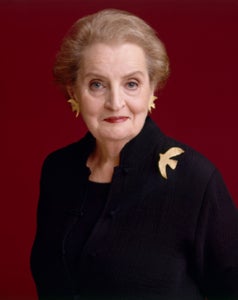 |
Madeleine K. Albright is a Chair of Albright Stonebridge Group and Chair of Albright Capital Management, an affiliated investment advisory firm focused on emerging markets. She was the 64th Secretary of State of the United States. Dr. Albright received the Presidential Medal of Freedom, the nation’s highest civilian honor, from President Obama in 2012. In 1997, Dr. Albright was named the first female Secretary of State and became, at that time, the highest ranking woman in the history of the U.S. government. As Secretary of State, Dr. Albright reinforced America’s alliances, advocated for democracy and human rights, and promoted American trade, business, labor and environmental standards abroad. From 1993 to 1997, Dr. Albright served as the U.S. permanent representative to the United Nations and was a member of the President’s Cabinet. Prior to her service in the Clinton Administration, she served as President of the Center for National Policy, a member of President Jimmy Carter’s National Security Council and White House staff and served as Chief Legislative Assistant to U.S. Senator Edmund Muskie.
Dr. Albright is a Professor in the Practice of Diplomacy at the Georgetown University School of Foreign Service. She chairs both the National Democratic Institute for International Affairs and the Pew Global Attitudes Project and serves as President of the Truman Scholarship Foundation. She is also on the U.S. Department of Defense’s Defense Policy Board, a group tasked with providing the Secretary of Defense with independent, informed advice and opinion concerning matters of defense policy. Dr. Albright also serves on the Boards of the Aspen Institute and the Center for American Progress. In 2009, Dr. Albright was asked by NATO Secretary General Anders Fog Rasmussen to Chair a Group of Experts focused on developing NATO’s New Strategic Concept. Dr. Albright is the author of five New York Times bestsellers: her autobiography, Madam Secretary: A Memoir (2003); The Mighty and the Almighty: Reflections on America, God, and World Affairs (2006); Memo to the President: How We Can Restore America’s Reputation and Leadership (2008); Read My Pins: Stories from a Diplomat’s Jewel Box (2009) and Prague Winter: A Personal Story of Remembrance and War, 1937-1948 (2012). Dr. Albright earned a B.A. with honors from Wellesley College and holds Master’s and Doctorate degrees from Columbia University’s Department of Public Law and Government, as well as a Certificate from its Russian Institute. She is based in Washington, DC. |
 |
Ayaan Hirsi Ali was born in Mogadishu, Somalia in 1969. The daughter of a political opponent of the Somali dictatorship, Ayaan Hirsi Ali grew up in exile, moving from Saudi Arabia to Ethiopia then Kenya. As a young child, she was subjected to female genital mutilation. As she grew up, she embraced Islam and strove to live as a devout Muslim. In 1992 Ayaan was married off by her father to a distant cousin who lived in Canada. In order to escape this marriage, she fled to the Netherlands where she was given asylum, and in time citizenship. In her early years in Holland she worked in factories and as a maid. She quickly learned Dutch, however, and was able to study at the University of Leiden. Working as a translator for Somali immigrants, she saw at first hand the inconsistencies between liberal, Western society and tribal, Muslim cultures. After earning her M.A. in political science, Ayaan worked as a researcher for the Wiardi Beckman Foundation in Amsterdam. She then served as an elected member of the Dutch parliament from 2003 to 2006. In 2004 Ayaan gained international attention following the murder of Theo van Gogh. Van Gogh had directed her short film Submission, a film about the oppression of women under Islam. The assassin, a radical Muslim, left a death threat for her pinned to Van Gogh’s chest. A visiting scholar at the American Enterprise Institute in Washington DC, Ayaan is currently researching the relationship between the West and Islam. Ayaan Hirsi Ali was named one of TIME Magazine’s “100 Most Influential People” of 2005, one of the Glamour Heroes of 2005 and Reader’s Digest‘s European of the Year for 2005. She has published a collection of essays, The Caged Virgin (2006), a memoir, Infidel (2007). |
 |
Named one of 15 Faith Leaders to Watch by the Center for American Progress, Reverend Jennifer Bailey is an ordained minister, public theologian, and national leader in multi-faith movement for justice based. She is the Founder and Executive Director of the Faith Matters Network (FMN), a people of color led leadership incubator dedicated to catalyzing the voices of emerging justice-centered leaders of faith. Rev. Bailey is the Co-Founder of the People’s Supper, a project that aims to repair the breach in our interpersonal relationships across political, ideological, and identity difference over shared meals. Since January 20, 2017, the People’s Supper has hosted over 1,000 dinners in 121 cities and towns across the United States. Along the way we have teamed up with ordinary citizens, schools, workplaces, faith communities and neighborhood organizations to model what deep community building looks like in a time of deepening social divides. |
 |
Stephen Balkam has had a wide range of leadership roles in the nonprofit sector in the both the US and UK for the past 30 years. He is the Founder and CEO of the Family Online Safety Institute (FOSI), an international, nonprofit organization headquartered in Washington, DC. FOSI’s mission is to make the online world safer for kids and their families. FOSI convenes the top thinkers and practitioners in government, industry and the nonprofit sectors to collaborate and innovate and to create a “culture of responsibility” in the online world. Prior to FOSI, Stephen was the Founder and CEO of the Internet Content Rating Association (ICRA) and lead a team which developed the world’s leading content labeling system on the web. While with ICRA, Stephen served on the US Child Online Protection Commission (COPA) in 2000 and was named one of the Top 50 UK Movers and Shakers, Internet Magazine, 2001. In 1994, Stephen was named the first Executive Director of the Recreational Software Advisory Council (RSAC) which created a unique self-labeling system for computer games and then, in 1996, Stephen launched RSACi – a forerunner to the ICRA website labeling system. For his efforts in online safety, Stephen was given the 1998 Carl Bertelsmann Prize in Gutersloh, Germany, for innovation and responsibility in the Information Society and was invited to the first and subsequent White House Internet Summits during the Clinton Administration. Stephen’s other positions include the Executive Director of the National Stepfamily Association (UK); General Secretary of the Islington Voluntary Action Council; Executive Director of Camden Community Transport as well as management positions at the Institute of Contemporary Arts (London) and Inter-Action. Stephen’s first job was with Burroughs Machines (now Unisys) and he had a spell working for West Nally Ltd – a sports sponsorship PR company. Stephen received a BA, magna cum laude, in Psychology from University College, Cardiff, Wales in 1977. A native of Washington, DC, Stephen spent many years in the UK and now has dual citizenship. He writes regularly for the Huffington Post, has appeared on nationally syndicated TV and radio programs such as MSNBC, CNN, NPR and the BBC and has been interviewed by leading newspapers such as the Washington Post, New York Times and The Wall Street Journal, radio and in the mainstream press. He has given presentations and spoken in16 countries on 4 continents. |
 |
Bradley D. Belt is senior managing director of the Milken Institute, head of the Institute’s Washington office, and oversees the Center for Financial Market Understanding and related capital markets initiatives. Belt joins the Milken Institute from Palisades Capital, a boutique restructuring advisory and investment firm he co-founded. Prior to establishing Palisades, he served in the Bush administration as the executive director of the Pension Benefit Guaranty Corp. As the chief executive officer of the PBGC, Belt was responsible for the operations and management of a $50 billion investment portfolio. Under his leadership, PBGC restructured its operations, adopted a new liability-driven investment policy, implemented performance-based human capital management strategies, established new risk management and internal control systems, and oversaw the resolution of many of the agency’s largest and most complex financial settlements. Belt had been previously appointed by President Bush to the Social Security Advisory Board, and he helped shape and communicate administration policy on pension and retirement security issues. Belt has extensive executive management, operations, finance and policy experience in the private, public and non-profit sectors. His previous government service includes senior staff positions with the Securities Exchange Commission and the U.S. Senate, including as counsel to the Committee on Banking, Housing and Urban Affairs. In the private sector, he has been an executive of a financial services and technology company, and managing director of merchant banking and public affairs strategy firms. He also served as senior vice president of the bipartisan Center for Strategic and International Studies. Belt is chairman of Palisades Capital, as well as a member of the Board of Trustees of the Protestant Episcopal Cathedral Foundation (the oversight board for Washington National Cathedral, and St. Albans, Cathedral, and Beauvoir schools), the Board of Directors of Zurich American Life Insurance Company, and the Advisory Board of Norfolk Markets. He is also a senior fellow with the McDonough School of Business (Georgetown). A frequent speaker and commentator on pensions, retirement finance, regulatory policy and corporate governance matters, Belt was named by SmartMoney as one of its “Power 30” in finance and by Workforce magazine as one of its “10 Most Forward-Thinking Leaders in Workforce Management.” An Eisenhower Fellow, Belt completed an executive management program at the Kennedy School at Harvard University, received his law degree from Georgetown and obtained his undergraduate degree in business administration from the University of Nebraska. He is a member of the New York, District of Columbia, and U.S. Supreme Court bars. |
 |
Jared Bernstein joined the Center on Budget and Policy Priorities in May 2011 as a Senior Fellow. From 2009 to 2011, Bernstein was the Chief Economist and Economic Adviser to Vice President Joe Biden, executive director of the White House Task Force on the Middle Class, and a member of President Obama’s economic team. Bernstein’s areas of expertise include federal and state economic and fiscal policies, income inequality and mobility, trends in employment and earnings, international comparisons, and the analysis of financial and housing markets. Prior to joining the Obama administration, Bernstein was a senior economist and the director of the Living Standards Program at the Economic Policy Institute in Washington, D.C. Between 1995 and 1996, he held the post of deputy chief economist at the U.S. Department of Labor. He is the author and coauthor of numerous books for both popular and academic audiences, including “Crunch: Why Do I Feel So Squeezed?” and nine editions of “The State of Working America.” Bernstein has published extensively in various venues, including The New York Times, Washington Post, Financial Times, and Research in Economics and Statistics. He is an on-air commentator for the cable stations CNBC and MSNBC and hosts jaredbernsteinblog.com. Bernstein holds a PhD in Social Welfare from Columbia University. |
 |
Jennifer Bradley is the founding director of the Center for Urban Innovation at the Aspen Institute. The Center for Urban Innovation exists to bridge the gap between innovators and underserved neighborhoods, so that innovators focus more attention on community challenges and neighborhood residents can bring their own new ideas to life. Jennifer joined Aspen in 2015 after spending seven years as a fellow at the Brookings Institution Metropolitan Policy Program. While at Brookings, she co-authored The Metropolitan Revolution (Brookings Press, 2013) with Bruce Katz. The book, which was widely praised and cited, explains the critical role of metropolitan areas in the country’s economy, society, and politics. Jennifer has worked extensively on the challenges and opportunities of older industrial cities and has co-authored major economic turnaround strategies for Ohio and Michigan. She has also written for Newsweek, The New Republic, The Atlantic Monthly, and Next American City. A former attorney, Jennifer co-authored Supreme Court amicus briefs in cases that affirmed the constitutional powers of local governments and secured greater environmental protections, including the landmark case, Massachusetts v. EPA. Jennifer has a J.D., magna cum laude, from Georgetown University Law Center, an MPhil from Oxford University, which she attended on a Rhodes Scholarship, and a B.A. from the University of Texas. She lives with her family in Washington, D.C. |
 |
Heidi Brooks is a Senior Lecturer in Organizational Behavior at Yale University School of Management. She specializes in leadership and community development for individuals, organizations, and larger systems. Her experience includes executive coaching and leadership development in Fortune 500 companies, academic institutions, family firms, and non-profit organizations. Since 2003, she has been on the faculty at the Yale School of Management, where she is the faculty director the Global Pre-MBA Leadership Program. Her courses include: Interpersonal Dynamics, Managing Teams and Groups, Leadership Development, Emotional Intelligence and Coaching Skills for Managers. In recent years, she spearheaded the original leadership development curriculum design and directed both the Leadership Development Program and the SOM Mentoring Program. Dr. Brooks has a PhD in psychology from the University of California at Berkeley and a BA from Brown University. When she is not with her family or on the tennis court, Heidi is usually engaged in building courageous leadership communities. |
 |
Catherine Brown is the Deputy Assistant Secretary for Intelligence Policy and Coordination (IPC) in the Bureau of Intelligence and Research (INR) at the Department of State. She previously worked with INR on a range of issues while in the Department’s Office of the Legal Adviser, which she joined in 1985. She has extensive experience representing the Department in interagency and international forums. Immediately before assuming her current position, Ms. Brown was the Department’s Assistant Legal Adviser for Diplomatic Law and Litigation, focusing on legal issues relating to the status of diplomatic and consular officers, other foreign government officials, and international organizations. From 1991 until 2006, she was Assistant Legal Adviser for Consular Affairs, handling legal issues relating to visa and citizenship adjudication, passport issuance, consular protection of Americans abroad and foreign nationals in the United States, and border security programs instituted in the aftermath of the 9/11 terrorist attacks. Ms. Brown represented the United States before the International Court of Justice in the Breard, LaGrand, and Avena cases brought by Paraguay, Germany, and Mexico over breaches of the consular notification requirements of the Vienna Convention on Consular Relations and participated in formulating the United States response to the Court’s decisions in those cases. She has also been involved in U.S. domestic litigation relating to consular notification requirements, and instituted the Department’s program to improve United States compliance with its consular notification obligations. During her State Department career, Ms. Brown has also worked in the areas of human rights and refugees; management; and Latin American affairs. She served as Deputy Agent for the United States for the merits phase of the Heathrow Airport User Charges Arbitration (United States v. United Kingdom), which resolved a US-UK dispute over landing fees imposed on U.S. airlines. She was Senior Adviser to the U.S. Refugee Coordinator from 1988-1989. As the Department’s Civil Service Ombudsman from 1993–1996, she helped develop career development opportunities for the Department’s civil service employees and participated in Department management reform efforts. Ms. Brown previously worked for the law firm of Covington & Burling of Washington, D.C. and served as a law clerk to Judge Levin Campbell of the U.S. Court of Appeals for the First Circuit, in Boston, Massachusetts. She is a magna cum laude graduate of the Harvard Law School and author of Japanese Approaches to Equal Rights for Women: The Legal Framework, 12 LAW IN JAPAN 29 (1979) (based on her work as a Luce Scholar in Japan, 1976-1977) and of reviews of Denza’s Diplomatic Law (2d ed.1998), 94 AJIL 424 (2000), and Lee’s Consular Law and Practice (2d ed. 1991), 90 AJIL 178 (1996). |
 |
John Seely Brown is the Independent Co-Chairman of the Deloitte’s Center for the Edge and a visiting scholar and advisor to the Provost at University of Southern California (USC). Prior to that he was the Chief Scientist of Xerox Corporation and the director of its Palo Alto Research Center (PARC)—a position he held for nearly two decades. While head of PARC, Brown expanded the role of corporate research to include such topics as the management of radical innovation, organizational learning, complex adaptive systems, and nano technologies. He was a cofounder of the Institute for Research on Learning (IRL). His personal research interests include digital youth culture, digital media and institutional innovation. John, or as he is often called—JSB— is a member of the American Academy of Arts and Sciences, the National Academy of Education, a Fellow of the American Association for Artificial Intelligence and of AAAS and a Trustee of the MacArthur Foundation. He serves on numerous public boards (Amazon, Corning, and Varian Medical Systems) and private boards of directors. He has published over 100 papers in scientific journals. With Paul Duguid he co-authored the acclaimed book The Social Life of Information (HBS Press, 2000) that has been translated into 9 languages with a second addition in April 2002. With John Hagel he co-authored the book The Only Sustainable Edge which is about new forms of collaborative innovation and The Power of Pull: how small moves, smartly made can set big things in motion, published April 2010. His current book, The New Culture of Learning co-authored with Professor Doug Thomas at USC, was released January 2011. JSB received a BA from Brown University in 1962 in mathematics and physics and a PhD from University of Michigan in 1970 in computer and communication sciences. He has received six honorary degrees including: May 2000, Brown University, Doctor of Science Degree; July 2001, the London Business School, Honorary Doctor of Science in Economics; May 2004, Claremont Graduate University, Honorary Doctor of Humane Letters; May 2005, University of Michigan, Honorary Doctor of Science Degree, and May 2009, North Carolina State University, Honorary Doctor of Science Degree, May 2011, Illinois Institute of Technology, Honorary Doctor of Design. |
 |
William D. Browning received a Bachelor of environmental design from the University of Colorado and a MS in real estate development from MIT. In 1991, Browning founded Rocky Mountain Institute’s Green Development Services, which was awarded the 1999 President’s Council for Sustainable Development/Renew America Prize. Browning’s clients include Wal-Mart’s Eco-mart, Starwood, Yellowstone National Park, Lucasfilm’s Letterman Digital Arts Center, New Songdo City, Bank of America’s One Bryant Park, the White House, and the Sydney 2000 Olympic Village. He coauthored Green Development: Integrating Ecology and Real Estate, Green Developments (CD-ROM), A Primer on Sustainable Building, and Greening the Building and the Bottom Line. Browning was named one of five people “Making a Difference” by Buildings magazine, and an Honorary member of the AIA. He was a founding member of US Green Building Council’s Board of Directors. In 2006 he became a principal in Terrapin Bright Green LLC, which crafts environmental strategies for corporations, government agencies and large-scale developments. He served on the DoD Defense Science Board Energy Task Force. |
 |
Mark Brownstein is Chief Counsel of the Energy Program at Environmental Defense Fund. Mark specializes in utility-related issues, including transmission development, wholesale and retail electric market design, rate reform, and power plant siting and investment. Mark leads EDF’s team on coal and natural gas. Mark is also adjunct Professor of Energy Policy at Columbia’s School of International and Public Affairs. Mark was one of two EDF staff leads on the United States Climate Action Partnership, a coalition of the nation’s leading corporations and environmental groups championing immediate action on federal legislation to cap and substantially reduce greenhouse gas pollution across the US economy. He is co-author of the Carbon Principles, a set of enhanced due diligence principles for investment banks considering the financing of coal fired power plants. Prior to joining Environmental Defense Fund, Mark was Director of Enterprise Strategy for Public Service Enterprise Group (PSEG), where he worked directly with PSEG’s senior leadership in crafting and implementing the corporation’s business strategy. Over his nearly ten year career with PSEG, Mark served the company in a variety of environmental management roles, including Director of Environmental Strategy and Policy. Mark was active in numerous environmental legislative and regulatory proceedings including efforts to develop federal legislation limiting emissions of sulfur dioxide, nitrogen oxides, mercury, and carbon dioxide from power plants, and the Environmental Council of States’ (ECOS) 37-state Ozone Transport Assessment Group (OTAG) process, which developed specific recommendations to address the persistent problem of ozone transport in the eastern United States. Mark was also an active member of the US EPA’s Clean Air Act Advisory Committee and New Jersey’s Renewable Energy Task Force. Aside from PSEG, Mark’s career includes time as an attorney in private environmental practice, a regulator with the New Jersey Department of Environmental Protection, and an aide to then-Congressman Robert G. Torricelli (D–NJ). |
 |
Aneesh Chopra is the former United States Chief Technology Officer. As an assistant to the President, he designed the National Wireless Initiative, helped launch Startup America, and executed an “open innovation” strategy across the government built on private sector collaboration–opening up data, convening on standards, and staffing “lean government startups.” Chopra previously served as Virginia’s Secretary of Technology and has returned as a senior advisor with The Advisory Board Company, a global research, consulting, and technology firm helping hospital executives to better serve patients, where he previously served as managing director. In 2011, Chopra was named to Modern Healthcare’s list of the “100 Most Influential People in Healthcare” (#39) and in 2008, to Government Technology magazine’s top 25 in their “Doers, Dreamers, and Drivers” issue. He earned his master’s degree in public policy from Harvard University and his bachelor’s degree from The Johns Hopkins University. Chopra is the author of the forthcoming book, “Innovative State: How New Technologies can Transform Government” focused on how we can tap entrepreneurial problem solvers to address challenges in health, energy and education markets. |
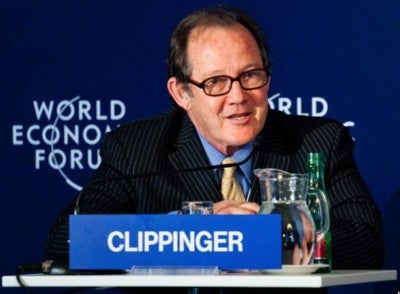 |
John Henry Clippinger is a co-founder of The Token Commons Foundation and Swythc.io. He is currently Research Scientist at the MIT Media Lab City Sciences Group, and previously a Research Scientist with the Human Dynamics Group. He is an Advisor to Bancor, Evident, Decentralized Pictures, Atonomi, SkyCoin, Cashaa, and the CryptoAsset Design Group. Previously, he was CEO of ID3 (The Institute for Data Driven Design) and Co-Director of The Law Lab at the Berkman Klein Center at Harvard Law School.
Dr. Clippinger is a contributor and co-editor From Bitcoin to Burning Man and Beyond; The Quest for Identity and Autonomy in Digital Society, (2014), the author of A Crowd of One: The Future of Individual Identity (Perseus, Public Affairs, 2007, and The Biology of Business, Natural Laws of Enterprise Josey Bass, 1998). Previously, he was Director of Intellectual Capital, Coopers & Lybrand, advisor to DOD CCRP (Command and Control Research Program (CCRP), DARPA, and the founder of four artificial intelligence software companies. He has been a member of the World Economic Forum Global Advisory Council, Santa Fe Institute, Aspen Institute, Highlands Forum, Yale CEO Summit, Dubai Futures Forum, Aspen Italia, TII/Vanguard, and others. Dr. Clippinger is a graduate of Yale University and holds a Ph.D. from the University of Pennsylvania. |
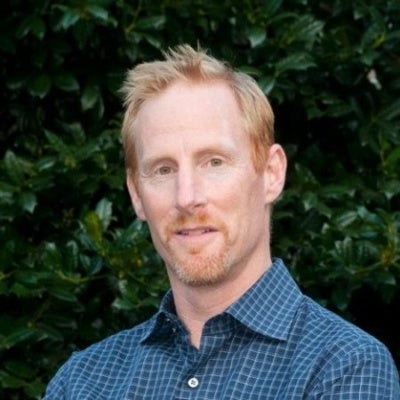 |
Jay Coen Gilbert is a co-founder of B Lab, a nonprofit organization that serves a global movement of people using business as a force for good. Its vision is that one day all companies compete not only to be the best in the world, but the Best for the World® and as a result society will enjoy a more shared and durable prosperity. Prior to B Lab, Jay co-founded and sold AND 1, a $250M basketball footwear and apparel company based outside Philadelphia. Jay led AND 1’s product and marketing for most of his 13 years there and was AND 1’s CEO during its period of most rapid growth.
Jay is on the board of Investors’ Circle, an organization dedicated to the acceleration of patient capital markets for a sustainable future. Since 1992, Investors’ Circle’s core activity has been the Investors’ Circle Network, a national network of angel investors, venture capital funds, foundations, and others that has facilitated the flow of over $111 million into 182 companies and venture funds addressing social and environmental challenges. Jay is a Henry Crown Fellow of the Aspen Institute and a Board member of the Philadelphia chapters of KIPP, a national public charter middle school, and Monteverde Friends, U.S. Jay grew up in New York City before heading west to Stanford University, graduating with a degree in East Asian Studies in 1989. Prior to AND 1, Jay worked for McKinsey & Co and several organizations in NYC’s public and non-profit sectors. Between AND 1 and B Lab, Jay enjoyed a sabbatical Down Under and in Monteverde, Costa Rica with his yogini wife Randi and their two children, Dex, 14, and Ria, 12. They live in Berwyn, PA. |
 |
Stephen Cohen joined the Brookings Institution as Senior Fellow in Foreign Policy Studies in 1998 after a career as a professor of Political Science and History at the University of Illinois. In 2004 he was named by the World Affairs Councils of America as one of America’s five hundred most influential people in the area of foreign policy. Dr. Cohen is the author, co-author or editor of over twelve books, mostly on South Asian security issues, the most recent being Four Crises and a Peace Process: American Engagement in South Asia (2007) and The Idea of Pakistan (2004), and an edited volume published by the National Academy of Science that explores the application of technology to the prediction, prevention or amelioration of terrorist acts. A book on the future of the Indian military is now in progress. In early 2008 Dr. Cohen was Visiting Professor at the Lee Kuan Yew School of Public Policy in Singapore, where he taught a course on the politics of manmade and natural disaster. In Asia he has also taught in Japan (Keio University) and India (Andhra University). He has consulted for numerous foundations and government agencies and was a member of the Policy Planning Staff (Department of State) from 1985-87. Dr. Cohen is currently a member of the National Academy of Science’s Committee on International Security and Arms Control, and was the founder of several arms control and security-related institutions in the U.S. and South Asia. He received undergraduate and graduate education at the University of Chicago, and the PhD in Political Science and Indian Studies from the University of Wisconsin. |
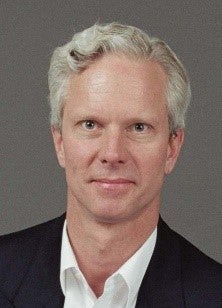 |
Terry Cooke founded the China Partnership of Greater Philadelphia in 2011 as a 501c3 public-private platform to accelerate commercial and research collaboration between the Greater Philadelphia region and China in clean energy and energy-efficient buildings. In July 2014, the China Partnership of Greater Philadelphia’s work with Tianjin was one of six collaborations awarded U.S.-China EcoPartnership status by U.S. Secretary of State John Kerry and China’s State Councilor Jiechi Yang at the annual high-level U.S.-China Strategic & Economic Dialogue talks. He is also a Distinguished Resident Senior Scholar at the Fox Leadership Program of the University of Pennsylvania.
Terry was a 2010 Public Policy Scholar with the Woodrow Wilson International Center for Scholars in Washington D.C., researching the U.S.-China clean energy relationship, particularly the interface of technology, policy and investment. His book Sustaining U.S.- China Cooperation in Clean Energy was published and launched by the Wilson’s Center’s Kissinger Institute in September 2012. Terry is a frequent speaker at corporate and investor events such as The International Conference on Green Energy, The BusinessWeek Global Green Business Summit China, and the New York Cleantech Investors Forum. He publishes frequently for the Foreign Policy Research Institute, the Brookings Institution, China Brief and other publications. Previously from 2006-8, Terry served as Director for Asian Corporate Partnership at the World Economic Forum, the host of the Davos Annual Meeting and the ‘Summer Davos’ in China. In 2003, Terry retired with the rank of Counselor as a career-member of the U.S. Senior Foreign Commercial Service. During his fifteen year career, Terry served as the U.S. Government’s senior commercial officer in Taipei and Berlin, as the deputy senior commercial officer in Tokyo and as commercial officer in Shanghai. Terry received his Ph.D. in Cultural Anthropology from the University of California at Berkeley in 1985, his MA from UCB in 1981 and his BA from Princeton University in 1976. He speaks Mandarin Chinese, Japanese, French, German and limited Hindi/Nepali. Terry serves as a board director for the Global Interdependence Center (www.interdependence.org) and as a member of the Global Advisory Committee of The Philadelphia Orchestra. |
 |
Dr. Margaret E. Crahan is a Senior Fellow at the Center for the Study of Democracy, Toleration, and Religion and Senior Research Scholar at the Institute for Latin American studies at the School of International and Public Affairs, Columbia University. She received her doctorate from Columbia in history. Until September 2009 she was the Kozmetsky Distinguished Professor and Director of the Kozmetsky Center of Excellence in Global Finance at St. Edward’s University. From 1982-1994 she was the Henry R. Luce Professor of Religion, Power and Political Process at Occidental College and from 1994-2008 the Dorothy Epstein Professor at Hunter College and Graduate Center of the City University of New York. Dr. Crahan has also held the Marous Professorship at the University of Pittsburgh (1993-94) and the Will and Ariel Durant Chair at St. Peter’s University (1988-89). She is a member of the Board of Trustees of St. Edward’s University and Vice President of the Inter-American Institute of Human Rights. She was a member of the Council on Foreign Relations Task Force on Latin America, 2006-08. She has participated in international missions to Bolivia, Chile, Dominican Republic, El Salvador, Guatemala, Honduras, Mexico, Nicaragua, Panama, Paraguay, Peru, and Uruguay. She has also visited Cuba some fifty times since 1973 for research. Dr. Crahan has published over one hundred articles and books including Human Rights and Basic Needs in the Americas; Religion, Culture and Society: The Case of Cuba; and The Wars on Terrorism and Iraq: Human Rights, Unilateralism, and US Foreign Policy (with Thomas G. Weiss and John Goering). |
 |
Clive Crook is Columnist and Member of the Editorial Board at Bloomberg View. A former Washington commentator of the Financial Times, he previously worked at the Economist and as a senior editor at the Atlantic. Crook was born in Yorkshire, and educated at Bolton School; Magdalen College, Oxford (where he was a foundation scholar); and the Government Economic Service. Crook worked for 20 years at the Economist, variously serving as economics correspondent, Washington correspondent, economics editor and deputy editor. |
 |
Kevin Davis: Baltimore, Md., July 8, 2015 – Today, Mayor Stephanie Rawlings-Blake named Kevin Davis as the Interim Police Commissioner. As the former Chief of the Anne Arundel County Police Department, he was appointed to the position of Deputy Police Commissioner seven-months ago, overseeing the Investigations and Intelligence Bureau. Interim Commissioner Davis is a native of Maryland, born and raised in College Park. He comes from a family with a history of policing in Maryland and he continued that legacy when he began his career with the Prince George’s County Police Department. As a Deputy Chief in Prince George’s County, Interim Commissioner Davis oversaw the Bureau of Investigations. His leadership resulted in an increase in clearance rates ensuring violent criminals were taken off the streets. Interim Commissioner Davis rose through the ranks to become the Assistant Chief of the Prince George’s County Police Department. This role led to extensive experience working with consent decrees; creating a solid foundation of Constitutional Policing. Additionally, the Interim Commissioner has a long history of working with residents, truly embodying the concepts of community policing. His experience in Prince George’s County made him uniquely qualified for the position overseeing the Baltimore Police Department’s Investigations and Intelligence Bureau. As the Chief of the Anne Arundel County Police Department, he made tremendous inroads in connecting with the community and building strong relationships with residents. He has continued that role in Baltimore, meeting with community groups and working to build strong relationships with the citizens of this city. Interim Commissioner Davis is a graduate of the FBI National Academy and the FBI National Executive Institute. He earned his Master’s Degree from Johns Hopkins University. He is married to his wife, Lisa, and has four children. |
 |
Susan Dentzer is the Editor-in-Chief of Health Affairs, the nation’s leading peer-reviewed journal focused on the intersection of health, health care and health policy in the United States and internationally. One of the nation’s most respected health and health policy journalists, she is an on-air analyst on health issues with the PBS NewsHour, and a frequent guest and commentator on such National Public Radio shows as This American Life and The Diane Rehm Show. Susan is also an elected member of the Institute of Medicine and the Council on Foreign Relations. At Health Affairs, Susan oversees the journal’s team of nearly 30 editors and other staff in producing the monthly publication and web site. Health Affairs has been described by the Washington Post as the “Bible” of health policy. Its articles and their authors ars frequently cited in the Congressional Record and in congressional testimony as well as in the news media. The Health Affairs web site recorded 21.5 million page views in 2009. Before joining Health Affairs in May 2009, Susan was on-air Health Correspondent at the PBS NewsHour. From 1998 to 2008, she led the show’s unit providing in-depth coverage of health care, health policy and Social Security. Prior to joining the PBS NewsHour, she was chief economics correspondent and economics columnist for U.S. News & World Report, and previously was a senior writer covering business and economic news at Newsweek. Susan’s other work in television has included appearances as a regular analyst or commentator on CNN and The McLaughlin Group. Her writing has also earned her several fellowships, including a Nieman Fellowship at Harvard University, where she studied health economics and policy, and a U.S.-Japan Leadership Program Fellowship, during which she researched the effects of the rapidly aging Japanese population. Susan is an elected member of the National Academy of Social Insurance, a nonprofit, nonpartisan organization made up of the nation’s leading experts on social insurance, is a fellow of the Hastings Center, a nonpartisan research institution dedicated to bioethics and the public interest. Susan chairs the Board of Directors of the Global Health Council, the largest membership organization of groups involved in global health, and is a member of the Board of Directors of the International Rescue Committee, a humanitarian organization providing relief to refugees and displaced persons around the world. She chairs the IRC board’s Health Committee, which oversees that organization’s health-related activities in roughly 25 countries. A graduate of Dartmouth and holder of an honorary master of arts from the institution, Susan is a Dartmouth trustee emerita and chaired the Dartmouth Board of Trustees from 2001 to 2004. She currently serves as a member of the Board of Overseers of Dartmouth Medical School. |
 |
Esther Dyson (@edyson on twitter) is chairman of EDventure Holdings and founder of HICCup.co, for Health Initiative Coordinating Council, an open-source initiative devoted to defining and testing a business model for investing in health (not health care). Her primary activity is investing in and nurturing start-ups, with a recent focus on health care and aerospace. She recently served on the selection panel for the Robert Wood Johnson Foundation Young Leader Awards and is active on the “health not healthcare” speaker circuit and from October 2008 to March of 2009, Dyson lived in Star City outside Moscow, Russia, training as a backup cosmonaut. Dyson sits on the boards of several nonprofits, including the Eurasia Foundation, the Sunlight Foundation, the Personal Genome Foundation, the Commercial Spaceflight Federation and StopBadware.org. She has a BA in economics from Harvard and was founding chairman of ICANN from 1998 to 2000. In 1997 Dyson wrote the best-selling, widely translated book Release 2.0: A Design for Living in the Digital Age, published by Broadway Books. |
 |
Mona Eltahawy is an award-winning columnist and an international public speaker on Arab and Muslim issues. She is based in New York. Her opinion pieces have been published frequently in The Washington Post and the International Herald Tribune and her columns appear in several other publications across the world. She is a frequent media guest analyst. During the 18-day revolution that toppled Egypt’s President Hosni Mubarak, she appeared on most major media outlets, leading the feminist website Jezebel to describe her as “The Woman Explaining Egypt to the West”. Newsweek magazine said she was “in demand as a fresh, female counterweight to all the white-bearded professorial types.” Before she moved to the U.S. in 2000, Mona was a news reporter in the Middle East for many years, including in Cairo and Jerusalem as a Reuters correspondent and she reported for various media from Egypt, Israel, Palestine, Libya, Syria, Saudi Arabia and China. Ms Eltahawy was the first Egyptian journalist to live and to work for a western news agency in Israel. Her public speaking has taken her around the world, including to the first TEDWomen where she spoke about the virtues of confusion in breaking stereotypes of Muslim women. In 2010 the Anna Lindh Foundation awarded her its Special Prize for Outstanding Contribution to Journalism and the Estlow International Center for Journalism and New Media at the University of Denver gave her its Anvil of Freedom Award. In 2009, the European Union awarded her its Samir Kassir Prize for Freedom of the Press for her opinion writing and Search for Common Ground named her a winner of its Eliav-Sartawi Award for Middle Eastern Journalism. Mona is a lecturer and researcher on the growing importance of social media in the Arab world. She has taught as an adjunct at the New School in New York, the University of Oklahoma and the U.N.-mandated University for Peace in Costa Rica. Mona was born in Port Said, Egypt and has lived in the U.K, Saudi Arabia and Israel. She calls herself a proud liberal Muslim. In 2005, she was named a Muslim Leader of Tomorrow by the American Society for Muslim Advancement and she is a member of the Communications Advisory Group for Musawah, the global movement for justice and equality in the Muslim family. |
 |
Ezekiel J. Emanuel, MD, PhD, the Chair of the Department of Bioethics at the NIH, is currently the Special Advisor on Health Policy at the White House Office of Management and Budget. He is also a breast oncologist and author. For 10 years, Dr. Emanuel has worked on global health, especially related to malaria and HIV/AIDS. He has trained researchers in developing countries on the ethics of clinical research and conducted numerous studies of ethical issues related to research in developing countries. At OMB, Dr. Emanuel has helped develop President Obama’s Global Health Initiative. He has written 3 books and co-authored 4. He is a member of the Institute of Medicine of the National Academy of Science and the Association of American Physicians. He has been the recipient of numerous awards, including the Malaria Vision Award from Malaria No More, and the President’s Medal for Social Justice from Roosevelt University. |
 |
James Fallows is a national correspondent for The Atlantic and has written for the magazine since the late 1970s. He has reported extensively from outside the United States and once worked as President Carter’s chief speechwriter. Fallows has written ten books, including Blind into Baghdad, Postcards from Tomorrow Square, Breaking the News: How the Media Undermine American Democracy, and, most recently, China Airborne: The Test of China’s Future. He has won the National Magazine Award, the American Book Award, and a New York Emmy for a documentary series on China. Fallows has done regular commentary for NPR since the 1980s. |
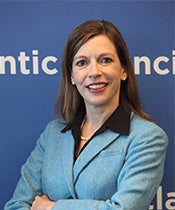 |
Dr. Evelyn Farkas is a Nonresident Senior Fellow at the Atlantic Council, and CNA and a National Security Analyst for NBC/MSNBC. She served from 2012 to 2015 as Deputy Assistant Secretary of Defense for Russia/Ukraine/Eurasia, responsible for policy towards Russia, the Black Sea, Balkans and Caucasus regions and conventional arms control. From 2010 to 2012 she served as Senior Advisor to the Supreme Allied Commander Europe and Special Advisor to the Secretary of Defense for the NATO Summit. Prior to that, she was a senior fellow at the American Security Project, and Executive Director of the Commission on the Prevention of Weapons of Mass Destruction Proliferation and Terrorism. From April 2001 to April 2008, she served as a Professional Staff Member of the Senate Armed Services Committee on Asia Pacific, Western Hemisphere, Special Operations Command, peace and stability operations, combatting terrorism, counternarcotics, homeland defense, and export control policy.From 1997-2001 Farkas was a professor of international relations at the U.S. Marine Corps Command and Staff College. She served in Bosnia with the Organization for Security and Cooperation in Europe (OSCE) in 1996-1997, and was an election observer in Afghanistan in 2009. She has published numerous journal articles and opinion pieces and “Fractured States and U.S. Foreign Policy: Iraq, Ethiopia, and Bosnia in the 1990s” (Palgrave/St. Martin’s Press, 2003, 2008). She speaks Hungarian and German, has studied French, Spanish, Russian, Serbo-Croatian, and Hindi. Dr. Farkas obtained her MA and Ph.D. from The Fletcher School of Law and Diplomacy and is a member of the Council on Foreign Relations. She is a member of the board of trustees of Franklin & Marshall College and Aspen Institute Socrates Seminar, and Harold Rosenthal Fellowship advisory boards. She has received several Department of Defense and foreign awards and an honorary doctorate from Franklin & Marshall College.Twitter: @EvelynNFarkas |
 |
Niall Ferguson, MA, D.Phil., is Laurence A. Tisch Professor of History at Harvard University and William Ziegler Professor of Business Administration at Harvard Business School. He is also a Senior Research Fellow at Jesus College, Oxford University, and a Senior Fellow at the Hoover Institution, Stanford University. Born in Glasgow in 1964, he was a Demy at Magdalen College and graduated with First Class Honours in 1985. After two years as a Hanseatic Scholar in Hamburg and Berlin, he took up a Research Fellowship at Christ’s College, Cambridge, in 1989, subsequently moving to a Lectureship at Peterhouse. He returned to Oxford in 1992 to become Fellow and Tutor in Modern History at Jesus College, a post he held until 2000, when he was appointed Professor of Political and Financial History at Oxford. Two years later he left for the United States to take up the Herzog Chair in Financial History at the Stern Business School, New York University, before moving to Harvard in 2004. His first book, Paper and Iron: Hamburg Business and German Politics in the Era of Inflation 1897-1927 (Cambridge University Press, 1995), was short-listed for the History Today Book of the Year award, while the collection of essays he edited, Virtual History: Alternatives and Counterfactuals (Macmillan, 1997), was a UK bestseller and subsequently published in the United States, Germany, Spain and elsewhere. In 1998 he published to international critical acclaim The Pity of War: Explaining World War One (Basic Books) and The World’s Banker: The History of the House of Rothschild (Penguin). The latter won the Wadsworth Prize for Business History and was also short-listed for the Jewish Quarterly/Wingate Literary Award and the American National Jewish Book Award. In 2001 he published The Cash Nexus: Money and Power in the Modern World, 1700-2000 (Basic), following a year as Houblon-Norman Fellow at the Bank of England. He is a regular contributor to television and radio on both sides of the Atlantic. In 2003 he wrote and presented a six-part history of the British Empire for Channel 4, the UK terrestrial broadcaster. The accompanying book, Empire: The Rise and Demise of the British World Order and the Lessons for Global Power (Basic), was a bestseller in both Britain and the United States. The sequel, Colossus: The Rise and Fall of the American Empire, was published in 2004 by Penguin. Two years later he published The War of the World: Twentieth Century Conflict and the Descent of the West, which was also a PBS series. His most recent book is the best-selling Ascent of Money: A Financial History of the World (Penguin, 2008). It aired on PBS this year. He has just completed a biography of the banker Siegmund Warburg and is now working on the life of Henry Kissinger. A prolific commentator on contemporary politics and economics, Niall Ferguson writes and reviews regularly for the British and American press. He is a contributing editor for the Financial Times and a regular contributor to Newsweek. In 2004 Time magazine named him as one of the world’s hundred most influential people. |
 |
Charles Firestone is Executive Director of the Aspen Institute Communications and Society Program and a Vice President of the Aspen Institute. Since his appointment in December 1989, this program has focused on the impact of new technologies on democratic, economic and social institutions, the development of new communications policy models and options for the public interest, and the implications of communications and information technologies for leadership. For three years he was also the Institute’s Executive Vice President for Policy Programs and International Activities.
Prior to his positions with the Aspen Institute, Firestone was Director of the Communications Law Program at the University of California at Los Angeles and Adjunct Professor of Law at the UCLA Law School, 1977-90. He was also the first President of the Los Angeles Board of Telecommunications Commissioners, which advises the Mayor and City Council on all regulatory matters relating to the cable and telecommunications fields. Firestone’s legal career includes positions as an attorney at the Federal Communications Commission, as director of litigation for a Washington, D.C. public interest law firm, and as a communications and entertainment attorney in Los Angeles. He has argued two cases before the United States Supreme Court and many others before the U.S. federal appellate courts. Firestone holds degrees from Amherst College and Duke University Law School. He is the editor, author or co-author of numerous articles on communications law and policy. He is a member of the Council on Foreign Relations, a GLOCOM Fellow of the Japanese Institute of Global Communications in Tokyo, Japan, and was a Visiting Professor at the Duke University Terry Sanford Institute of Public Policy in 2003. He resides with his wife, sculptor Pattie Porter Firestone, in Santa Barbara, California. |
 |
AO Forbes works currently at Colorado Rocky Mountain School (CRMS) in Carbondale. He teaches high school geography. Forbes has served on numerous committees at CRMS, coached soccer, led trips, been a dorm parent, served as liaison between staff and school trustees and chaired the history department. He was awarded the Governor’s Award for Excellence, and earned Teacher of the Year from Phi Delta Kappa in 1985. Since 2000, Tomorrow’s Voices has been Forbes most driving extracurricular purpose. |
 |
Thomas Friedman, a world is an internationally renowned author, reporter, and columnist; recipient of three Pulitzer Prizes; and author of six best-selling books: From Beirut to Jerusalem; The Lexus and the Olive Tree; Longitudes and Attitudes; The World Is Flat; Hot, Flat, and Crowded; and That Used to Be Us, which he co-wrote with Michael Mandelbaum. Friedman’s foreign affairs column in The New York Times, which he has written since 1995, reports on US domestic politics and foreign policy, Middle East conflicts, international economics, environment, biodiversity, and energy. He has been with The New York Times since 1981. |
|
|
Julius Genachowski is a managing director and partner at The Carlyle Group in the US Buyout team, focusing on investments in global technology, media and telecom. He served as chairman of the US Federal Communications Commission from 2009 to 2013, during which time the agency was named the most improved in federal government and one of Wired’s Top 7 Disruptions. Genachowski was previously chief of business operations at IAC/InterActiveCorp. He worked on Harvard Law Review with President Barack Obama, whom he has long advised on tech issues. Genachowski serves on the boards of MasterCard, Sonos, and Syniverse. |
 |
Elliot Gerson is responsible for the Aspen Institute Policy Programs, its Public Programs and its relations with its international partners. The Institute’s Policy Programs focus on many of the most important issues in domestic and international affairs, as well as in topics in art, culture and science. They seek to improve decision-making by providing neutral venues, nonpartisan analysis and candid dialogue among leaders. The Institute’s Public Programs open the Institute’s doors to a broader audience of influential citizens, and include the Aspen Ideas Festival and several more specialized forums. These occur primarily on the Institute’s Aspen and Chesapeake Bay campuses, in Washington, at the Roosevelt House in New York City, and occasionally in other cities and overseas. Aspen has international partners in France, Germany, India, Italy, Japan, Romania and Spain. Elliot is a graduate of Harvard, Oxford and Yale Law School. He was a U.S. Supreme Court clerk and has had a career including the practice of law, executive positions in state and federal government and a presidential campaign, president of leading insurance and healthcare companies, executive experience in two internet start-ups, and service on many non-profit boards, especially in the arts and humanities. Also, as American Secretary of the Rhodes Trust, he manages the U.S. Rhodes Scholarships. He is married to Dr. Jessica Herzstein. They have seven children and live in Washington and Aspen. Dr. Herzstein, a physician educated at Harvard and Yale, is global medical director of an international chemical company, a consultant in environmental and occupational medicine, and a member of the U.S. medical/scientific task force that sets standards for preventive health measures, including screening for cancer. |
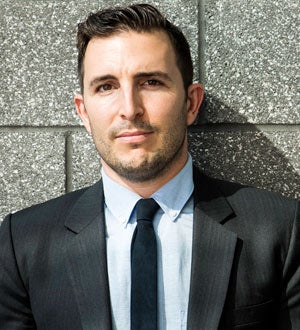 |
Justin Gest is an Assistant Professor of Public Policy at George Mason University’s Schar School of Policy and Government. His teaching and research interests include comparative politics, immigration, and demographic change.
His first book, Apart: Alienated and Engaged Muslims in the West (Oxford University Press/Hurst, 2010), studied Muslim political behavior in Western democracies. This research explored the origins of extremism and civic engagement among a stigmatized community of citizens. His second book, The New Minority: White Working Class Politics in an Age of Immigration and Inequality (Oxford University Press, 2016), examines the complicated marginality of white working class people in the United States and Britain, where they have been the backbone of movements to elect Donald Trump and leave the European Union. His third book, The White Working Class: What Everyone Needs To Know, provides an essential overview of political, sociological, psychological and economic research on the politics of white working class people in the United States and Britain. His fourth book, Crossroads: Comparative Immigration Regimes in a World of Demographic Change (Cambridge University Press, forthcoming 2018), is co-authored with Anna Boucher. This work presents a systematic, comprehensive, and demographic data-driven taxonomy of migration regimes across 30 countries. It explores the question of what drives convergence and variation in immigration policy worldwide. His research has been published in journals including Citizenship Studies, Comparative Political Studies, Ethnic and Racial Studies, Global Governance, Global Policy, the International Migration Review, Migration Studies, Proceedings of the National Academy of Sciences, and the Review of Middle East Studies. He has also published commentary, analysis or contributed reporting to a number of newspapers including The Boston Globe, The Guardian, the Houston Chronicle, The Hill, the Los Angeles Times, The New York Times, Politico, Reuters, the St. Louis Post-Dispatch, The Times, and The Washington Post. From 2010 to 2014, Professor Gest was a postdoctoral fellow and lecturer in Harvard University’s Departments of Government and Sociology. In 2014, he received the Joseph R. Levenson Memorial Teaching Prize, Harvard’s highest award for teaching. In 2013, he received the 2013 Star Family Prize for Student Advising, Harvard’s highest award for student advising. From 2007 to 2010, while a doctoral student, he co-founded and served as the co-director of the Migration Studies Unit at the London School of Economics and Political Science (LSE). He is a product of Los Angeles Unified School District’s University High School in West Los Angeles, where he grew up. He later earned his bachelor’s degree in Government at Harvard University and his PhD in Government from the LSE. |
 |
Dan Glickman is the Executive Director of the Aspen Institute Congressional Program, a nongovernmental, nonpartisan educational program for members of the United States Congress. The program provides lawmakers with a stronger grasp of critical public policy issues by convening high-level conferences and breakfast meetings in which legislators are brought together with internationally-recognized academics, experts and leaders to study the issues and explore various policy alternatives. He served as the U.S. Secretary of Agriculture from March 1995 until January 2001. Under his leadership, the Department administered farm and conservation programs; modernized food safety regulations; forged international trade agreements to expand U.S. markets; and improved its commitment to fairness and equality in civil rights. Before his appointment as Secretary of Agriculture, Glickman served for 18 years in the U.S. House of Representatives representing the 4th Congressional District of Kansas. During that time, he was a member of the House Agriculture Committee, including six years as chairman of the subcommittee with jurisdiction over federal farm policy issues. Moreover, he was an active member of the House Judiciary Committee; chairman of the House Permanent Select Committee on Intelligence; and was a leading congressional expert on general aviation policy. Glickman served as Chairman of the Motion Picture Association of America, Inc. (MPAA) from 2004 until 2010. |
 |
Seth Goldman is co-founder, President and TeaEO of Honest Tea, the company he co-founded in 1998 with Professor Barry Nalebuff of the Yale School of Management. Over the past fourteen years the company has thrived as consumers have shifted toward healthier and more sustainable diets. In March 2011, Honest Tea was acquired by The Coca-Cola Company, helping to further the reach and impact of Honest Tea’s mission by becoming the first organic and Fair Trade brand in the world’s largest beverage distribution system. An entrepreneur at heart, Seth started with lemonade stands and newspaper routes as a kid, created a non-profit urban service program, and nearly pursued a prize-winning biotechnology idea before he started Honest Tea in his kitchen. Since then, the company has initiated community-based partnerships with suppliers in India, Chinaand South Africa, and has created marketing partnerships with the Arbor Day Foundation, City Year, and RecycleBank. In addition to being named one of The Better World Shopping Guide’s “Ten Best Companies on the Planet based on their overall social and environmental record,” Honest Tea was also listed as one of PlanetGreen.com’s “Top 7 Green Corporations of 2010.” In 2010, The Huffington Post ranked Honest Tea as one of the leading “8 Revolutionary Socially Responsible Companies.” In 2008, Seth co-founded Bethesda Green, a local sustainability initiative in Honest Tea’s hometown. In its first year, the initiative helped area restaurants convert their grease waste into biodiesel, and collected over 200,000 lbs of electronic waste. Bethesda Green hosts Maryland’s first green business incubator, with fourteen start-ups currently in residence. Seth serves on the boards of Bethesda Green, Happy Baby, The Calvert Foundation, the American Beverage Association, Repair the World, and sits on the Advisory Board of Net Impact. In 2011, Seth was appointed by Governor Martin O’Malley to the Maryland Economic Development Commission. Before launching Honest Tea, Seth worked at Calvert Group, managing the marketing and sales efforts for the nation’s largest family of socially responsible mutual funds. His previous work includes directing an AmeriCorps demonstration project inBaltimoreand serving as Senator Lloyd Bentsen’s Deputy Press Secretary. He has also worked in Beijing and Moscow. He is a graduate of Harvard College(1987) and the Yale School of Management (1995), and holds an honorary Doctorate of Laws from American University. In 2009, Seth was the recipient of Net Impact’s Member Achievement Award. He is a Henry Crown Fellow of the Aspen Institute. |
 |
Jack Goldstone is Hazel Professor of Public Policy and a Fellow of the Mercatus Center of George Mason University. He received his Ph.D. from Harvard University. He has won major prizes from the American Sociological Association and the Historical Society for his research on revolutions and social change, and has won grants from the MacArthur Foundation, the U.S. Institute of Peace, and the National Science Foundation. He recently led a National Academy of Sciences study of USAID democracy assistance, and worked with USAID, DIFD, and the US State and Defense Departments on developing their operations in fragile states. Goldstone’s current research focuses on conditions for building democracy and stability in developing nations, the impact of population change on the global economy and international security, and the cultural origins of modern economic growth. His recent essay in Foreign Affairs, “The New Population Bomb” has received world-wide attention. Goldstone has authored or edited ten books and published over one hundred articles in books and scholarly journals. His latest books are Why Europe? The Rise of the West 1500-1850 (McGraw-Hill, 2008), and Political Demography: Identities, Change, and Conflict (Paradigm, forthcoming). |
 |
Richard Gray serves as director of AISR’s Community Organizing & Engagement team. His work includes providing strategic support on community organizing and engagement to community and school reform organizations in cities across the country. He also directs AISR’s Center for Education Organizing, which helps expand the power of education organizing through building strategic alliances among organizations and with strategic partners such as teachers’ unions, reform support organizations, civil rights organizations, and research and policy institutes. Previously, he was director of national technical assistance with the Community Involvement Program at New York University’s Institute for Education and Social Policy (IESP), where he assisted community groups in New York City and across the country in developing strategies to improve local schools and shape more effective and equitable education policies. He was also co-executive director of the National Coalition of Advocates for Students (NCAS), a nationwide network of child advocacy organizations that work to improve the access of quality public education to student populations who have traditionally been underserved by public schools. Richard received a BA in History from Brown University and a JD from Boalt Hall School of Law at the University of California at Berkeley. |
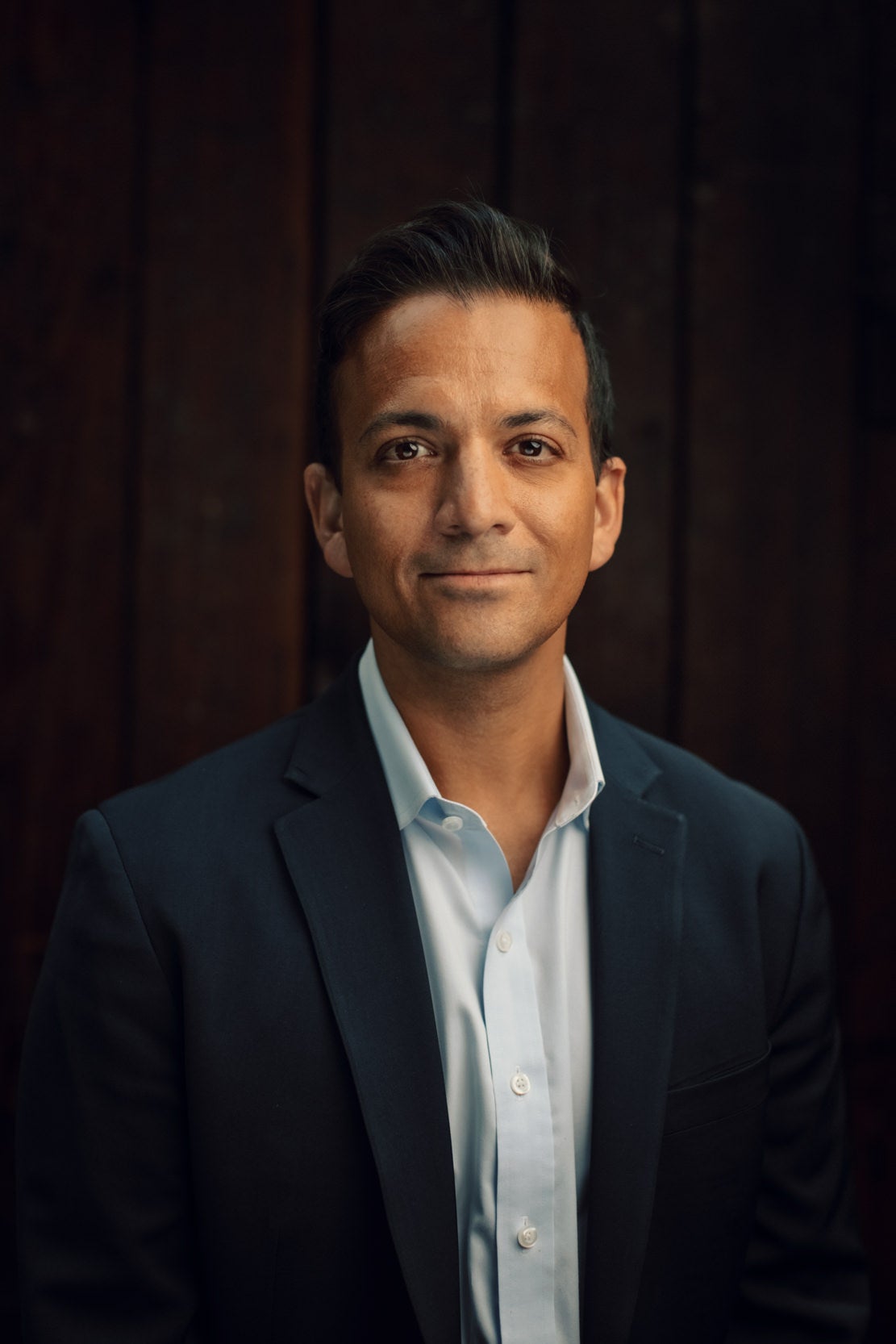 |
Vin Gupta, MD, MPA, MSc, is an Affiliate Assistant Professor of Health Metrics Sciences at the Institute for Health Metrics and Evaluation (IHME) at the University of Washington.
Clinically active as a Pulmonary/Critical Care physician, Dr. Gupta’s research has focused on several important issues in global public health. He previously was a full-time Assistant Professor with the Institute for Health Metrics and Evaluation (IHME) and the Department of Health Metrics Sciences (HMS) from 2018-2020. During this time, Dr. Gupta helped lead a large research portfolio examining the global burden of non-communicable diseases using the most advanced epidemiologic methods. These efforts were primarily funded by Bloomberg Philanthropies and focused on attributable disease from tobacco use globally, with particular focus on Mexico, Brazil, China, and Indonesia. A secondary area of focus included assessing the impact of environmental health considerations (e.g., air pollution) on chronic respiratory disease. He concurrently holds an active commissioning as Major in the United States Air Force Reserve Medical Corps, where he serves a deployable critical care aerospace physician with the 446th Aeromedical Staging Squadron based at Joint-Base Lewis McChord.. In this capacity, Dr. Gupta previously assisted with bolstering the emergency health crisis response capabilities of partner nations in Africa as part of the US State Department’s African Peacekeeping Rapid Response Partnership (“A-Prep”) initiative. In his current role as Principal Scientist at Amazon, Dr. Gupta provides clinical and strategic leadership to the company’s internal and external COVID-19 response work, including overseeing the funding of clinical trials, expanding its work in public health through community-based initiatives, and ensuring the implementation of evidenced-based workplace health and safety protocols. Dr. Gupta received his BA from Princeton, MD from Columbia University’s Vagelos College of Physicians & Surgeons, Master’s in International Relations from the University of Cambridge, and Master’s in Public Administration from the Kennedy School of Government at Harvard. He is a term member of the Council on Foreign Relations, regular health policy contributor for national media outlets, and board member on several health-focused nonprofit organizations nationwide.
|
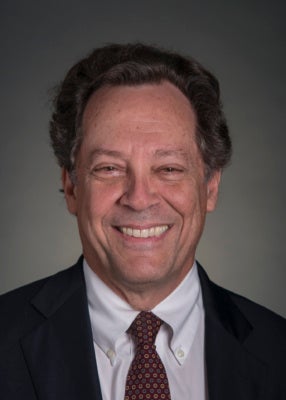 |
Leigh Hafrey is Senior Lecturer in Behavioral and Policy Sciences at the MIT Sloan School of Management. Since 1995, he has offered courses in communication, ethics, and leadership in the MBA and other graduate programs in the U.S. and abroad. He has also taught at Harvard Business School; served as co-Master of Mather House, one of the undergraduate residences in Harvard College; and for more than 20 years has moderated seminars in programs of the Aspen Institute. He serves on the boards of the Green Rural Opportunities Fund, a spin-off of the Butajira, Ethiopia-based GreenPath Food, and ClassACT HR73, an alumni initiative of the Harvard-Radcliffe Class of 1973. A former staff editor at The New York Times Book Review, Hafrey has published translations from French and German and columns, feature articles, essays, reviews, and interviews in The New York Times and other periodicals, as well as blog posts and business case studies for MIT Sloan. He is the author of two books on values and leadership, The Story of Success: Five Steps to Mastering Ethics in Business (2005) and War Stories: Fighting, Competing, Imagining, Leading (2016). |
 |
As a reporter who was the first Latina in many newsrooms, Maria Hinojosa dreamt of a space where she could create independent, multimedia journalism that explores and gives a critical voice to the diverse American experience. To that end, in 2010, she created the Futuro Media Group, an independent nonprofit organization based in Harlem, NYC with the mission to create multimedia content for and about the new American mainstream in the service of empowering people to navigate the complexities of an increasingly diverse and connected world. As the Anchor and Executive Producer of the Peabody Award winning show Latino USA, distributed by NPR, as well as Co-Host of In The Thick, Futuro Media’s new political podcast, Hinojosa has informed millions about the changing cultural and political landscape in America and abroad. Hinojosa is also Anchor and Executive Producer of the PBS show America By The Numbers, the first national television series to examine our country’s dramatic demographic shifts, and Humanizing America, a digital video series that deconstructs stereotypes about the American electorate. Hinojosa is also a new contributor to the long running award-winning news program CBS Sunday Morning, and is a frequent guest on MSNBC.
Hinojosa’s nearly 30-year career as an award-winning journalist includes reporting for PBS, CBS, WNBC, CNN, NPR, and anchoring the Emmy Award winning talk show Maria Hinojosa: One-on-One. She is the author of two books and has won dozens of awards, including: four Emmys, the John Chancellor Award, the Studs Terkel Community Media Award, two Robert F. Kennedy Awards, the Edward R. Murrow Award, and the Ruben Salazar Lifetime Achievement Award. Hinojosa was the first Latina to anchor a PBS FRONTLINE report: “Lost in Detention” which aired in October 2011, explored abuse at immigrant detention facilities, garnering attention from Capitol Hill as well as both the mainstream and Spanish-language media. Hinojosa has reported hundreds of important stories — from the restrictive immigration policies in Fremont, Nebraska, to the effects of the oil boom on Native people in North Dakota, to stories of poverty in Alabama. As a reporter for NPR, Hinojosa was among the first to report on youth violence in urban communities on a national scale. During her eight years as CNN’s urban affairs correspondent, Hinojosa often took viewers into communities rarely shown on television. Now at the Futuro Media Group, Hinojosa continues to bring attention to experiences and points of view that are often overlooked or underreported in mainstream media, all while mentoring the next generation of diverse journalists to delve into authentic and nuanced stories that impact their communities. She is currently the Sor Juana Inés de la Cruz Chair of Latin American and Latino Studies at DePaul University in Chicago, and lives with her husband, son and daughter in Harlem, New York. |
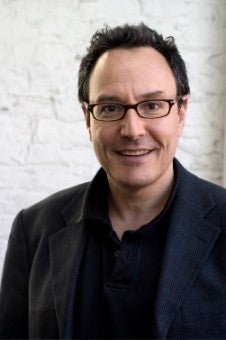 |
Peter Hirshberg is a tech executive and activist who builds organizations and movements and finds value in self-organizing, distributed systems that work from the bottom-up to effect change.
Peter’s sensibilities around how technology can empower people dates back to his early days at Apple, where he headed up Enterprise Markets under Steve Jobs. He has since led technology-based change initiatives for The White House, The United Nations, The World Economic Forum and multiple Silicon Valley companies. Currently Hirshberg is: -Chairman, Board-of-Advisors, of Swytch.io, a company deploying blockchain to create a global market for incentives to reduce atmospheric carbon and accelerate capital for renewable energy investments. -Chairman and Founder of the Gray Area Art and Technology Center, one of San Francisco’s most vibrant and civic-minded arts organizations and a pioneer in digital media education, incubation, performance and exhibition -Chairman of the Maker City Project, which works with private sector companies and cities to explore new models of economic and civic development in an era of disruotive change. Hirshberg’s research on the Maker City is available in the best-selling book, Maker City: A practical guide to reinventing our cities. Published in late 2016, the book was funded by the Kauffman Foundation and created in collaboration with the Obama White House. -Advisor to Transloc, a provider of on-demand mobility services for public transit agencies, sold to Ford where he continues as advisor. Previously Hirshberg served as CEO of Elemental Software (sold to Adobe), Gloss.com (Estee Lauder), and Chairman of Technorati, the pioneering social media search engine and advertising network with over 100M monthly uniques. He is a Senior Fellow at the USC Annenberg Center on Communication Leadership and Policy and a Henry Crown fellow of the Aspen Institute and an author for the Brookings Institution. As an advisor to the United Nations, he’s addressed the General Assembly on the use of real-time data for international development and served as editor of Taking the Global Pulse. In addition to the Maker City, Hirshberg is co-author of “From Bitcoin to Burning Man and Beyond” with the MIT Media lab. A graduate of Dartmouth College, he received his MBA at the Wharton School of the University of Pennsylvania. |
 |
Bart Houlahan, along with his partners, Jay Coen Gilbert and Andrew Kassoy, co-founded B Lab in 2006. B Lab is a nonprofit organization dedicated to using the power of business to solve social and environmental problems. B Lab drives systemic change through three interrelated initiatives: 1) Certified B Corporations: a corporate certification for sustainable businesses and social enterprises that meet higher standards of social and environmental performance and legal accountability; 2) GIIRS Ratings and Analytics: a ratings platform (analogous to Morningstar and Capital IQ) that drives capital to impact investments by assessing the social and environmental performance of companies and funds; and 3) Benefit Corporations: a new, legally-recognized corporate form that changes corporate fiduciary duty, permitting companies to create shareholder value and social value. Prior to B Lab, Bart was President of AND 1, a basketball footwear and apparel company. Over the course of 11 years, Bart helped to finance, operate and scale the business to $250 MM in brand revenues with distribution in 80 countries. AND 1 undertook a leveraged recapitalization in 1999 with TA Associates, and was sold in May, 2005, to American Sporting Goods out of Irvine, CA. Before AND 1, Bart was an investment banker with Stonebridge Associates, BNY Associates, and Prudential-Bache Securities. Bart is a Henry Crown Fellow of the Aspen Institute and an Advisory Board Member of the Center for the Advancement of Social Entrepreneurship (CASE) at the Fuqua School of Business. A graduate of Stanford University, Bart now resides in Devon, PA, with his wife, Chrissy, and daughters, Molly and Carly. |
 |
John Irons joined The Rockefeller Foundation in 2012. As Managing Director, Foundation Initiatives, he leads much of the Foundation’s work in the United States, particularly initiatives on employment, and contributes more broadly to economic analysis of the Foundation’s initiatives. His focus includes youth employment and inclusive economies. Prior to joining the Rockefeller Foundation, Dr. Irons was the Research Director at the Economic Policy Institute in Washington, D.C. He was a tenure track Assistant Professor of Economics at Amherst College, and has worked at the Federal Reserve Board of Governors and other DC-based think-tanks. Dr. Irons has authored numerous reports and articles on a range of economic topics including tax and budget policy, labor markets, and macroeconomic policy. He has won several awards for his economics websites, including top‐5 awards from The Economist and Forbes. Dr. Irons holds a bachelor’s in economics with High Honors from Swarthmore College and a Ph.D. in economics from the Massachusetts Institute of Technology. Dr. Irons was awarded a National Science Foundation Graduate Fellowship, as well as a Graduate Fellowship from the Harvard/MIT Research Training Group in Positive Political Economy. |
 |
Neil Jacobstein Co-chairs the AI and Robotics Track at Singularity University headquartered at the NASA Research Park in Mountain View California. He is a former President of Singularity University. Jacobstein is a Distinguished Visiting Scholar in Stanford University’s Media X Program. He was a Senior Research Fellow in the Reuters Digital Vision Program at Stanford. He has served as an AI technical consultant on research and development projects for leading business, government, and defense organizations including Deloitte, XPrize, GM, Ford, Boeing, ING, Wells Fargo, FMC, P&G, Hershey, Coca Cola, Loews, Harman, GE, Wipro, Dow, Genentech, Boeing, Lockheed Martin, Applied Materials, NSF, DARPA, NASA, NIH, EPA, DOE, the U.S. Army, Navy, and Air Force. Jacobstein was CEO at Teknowledge Corporation, an early AI company. He chaired the 17th Association for the Advancement of Artificial Intelligence’s (AAAI) Innovative Applications of Artificial Intelligence (IAAI) Conference, and continues to review IAAI technical papers annually. Jacobstein is a Henry Crown Fellow at the Aspen Institute, has led seminars, and coached Socrates moderators. He was a Graduate Research Intern in Alan Kay’s Learning Research Group at Xerox Palo Alto Research Center, and a consultant in PARC’s Software Concepts Group. Jacobstein was appointed by the US National Academy of Sciences to its National Research Council Division on Earth and Life Sciences Committee for the period 2015-2018. Neil has a deep commitment to honoring the humanistic and scientific, and a sense of urgency about us resolving the grand challenge problems facing Earth. Jacobstein has served in a wide variety of executive and advisory roles for industry, nonprofit, and government organizations. |
 |
Neal Katyal, the Paul Saunders Professor at Georgetown University, focuses on Constitutional Law, Criminal Law, and Intellectual Property. He has served as Acting Solicitor General of the United States, where he argued several major Supreme Court cases involving a variety of issues, such as his successful defense of the constitutionality of the Voting Rights Act of 1965, his victorious defense of former Attorney General John Ashcroft for alleged abuses in the war on terror, his unanimous victory against 8 states who sued the nation’s leading power plants for contributing to global warming, and a variety of other matters. As Acting Solicitor General, Katyal was responsible for representing the federal government of the United States in all appellate matters before the U.S. Supreme Court and the Courts of Appeals throughout the nation. He served as Counsel of Record hundreds of times, and orally argued 17 U.S. Supreme Court cases, as well as numerous others in lower courts. He was also the only head of the Solicitor General’s office to argue a case in the U.S. Court of Appeals for the Federal Circuit, on the important question of whether certain aspects of the human genome were patentable. |
 |
Charles Kenny is a senior fellow at the Center for Global Development. He has published articles, chapters and books on issues including the link between economic growth and broader development, the causes of improvements in global health, the history of happiness and the link between economic growth and happiness. He is the author of the book Getting Better: Why Global Development is Succeeding, and How We Can Improve the World Even More, and co-author, with his father, of the book Life, Liberty and the Pursuit of Utility: Happiness in Philosophical and Economic Thought. He is on the editorial board of the Journal of Happiness Studies, a contributing editor at Foreign Policy magazine and a regular columnist for Businessweek. |
 |
Sal Khan is the founder of the Khan Academy (khanacademy.org), a nonprofit with the mission of providing free, high-quality education for “anyone, anywhere” in the world. Khan was born andraised in New Orleans, Louisiana. Khan graduated from MIT in 1998 with three degrees: two bachelor of science degrees in mathematics and electrical engineering/computer science; and amaster of science degree in electrical engineering. He began his career working in technology and later earned his MBA at Harvard Business School. Khan then became an analyst at a Boston based hedge fund which later relocated to Palo Alto in 2005. In 2004 as a side project, Khan began tutoring his young cousin in math, communicating by phone and using an interactive notepad. By 2006, word got around and Khan was tutoring 15 family friends and cousins as a hobby. To better scale, he began writing software to give his cousins practice and feedback in mathematics.To complement this software, he also began posting videos of his hand-scribbled tutorials on YouTube. Demand took off, and in 2009, when the practice problems and instructional videos were reaching tens of thousands of students per month, he quit his day job to commit himself fully to the not-for-profit Khan Academy. The Khan Academy website now provides a self-pacing guided learning experience withover100,000 practice exercises and 5,000 instructional videos covering every thing from basic arithmetic to college level science and economics. It’s the most-used library of educational lessons on the web, with over 10 million unique students per month, over 300 million lessons delivered, and over a billion exercises completed. Over 200,000 educators around the world are also using Khan Academy to help build student mastery of topics and to free up class time for dynamic project based learning. Khan has been profiled by 60 Minutes, featured on the cover of Forbes Magazine, and recognized as one of TIME Magazine’s “100 Most Influential People in the World”. In late 2012, Khan released his book The One World Schoolhouse: Education Reimagined. |
 |
Bruce Kogut is a chaired professor in the management division at Columbia Business School. He is also the director of the Sanford C. Bernstein & Co. Center for Leadership and Ethics. His research includes comparative and economic sociology, strategy, comparative methods, social entrepreneurship, and governance. Professor Kogut has published several books covering various aspects of the global economy and technology in the workplace, in addition to an extensive list of journal publications. His edited book Corporate Governance and International Capital Flows (with Peter Cornelius, chief economist, Alpinvest) was presented at the World Economic Forum and his most recent book is The Small Worlds of Corporate Governance. He joined the faculty in January 2007. Prior to joining the Columbia faculty, Professor Kogut served as the Eli Lilly Chair in Innovation, Business and Society at INSEAD and the Dr. Felix Zandman Professor at the Wharton School, University of Pennsylvania, where he headed the Reginald H. Jones Center. He has been a visitor at the École Polytechnique, Stockholm School of Economics, Wissenschaftszentrum, and Santa Fe Institute. Professor Kogut was also the scientific director for EIASM, Brussels; a member of the steering committee for the Advanced Institute of Management; and the research advisory board to the Skolkovo Business School in Russia. He is currently a board member of 3I Infotech. Professor Kogut earned his PhD at the Massachusetts Institute of Technology’s Sloan School of Management, a master’s degree in international affairs at Columbia University, and a BA in political science at the University of California, Berkeley. He received an honorary doctorate from the Stockholm School of Economics in 2005. |
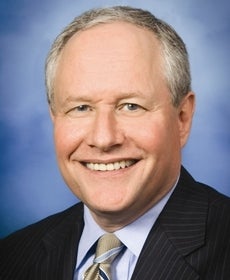 |
Bill Kristol is the editor at large of The Weekly Standard, is a regular on ABC’s This Week and on ABC’s special events and election coverage, and appears frequently on other leading political commentary shows. Before starting The Weekly Standard in 1995, Mr. Kristol led the Project for the Republican Future, where he helped shape the strategy that produced the 1994 Republican congressional victory. He served as editor for 21 years. |
 |
Michelle Lapinski is The Nature Conservancy’s Director, Corporate Practices, reporting to the Chief External Affairs Officer. She leads development of the Conservancy’s worldwide corporate engagement strategy, and the Conservancy’s International Leadership Council of corporations. She is especially focused on increasing collaboration with the private sector to improve business practices andengage industry partners to realize the benefits of conservation and good ecosystem management as a business strategy. Michelle is located at the Conservancy’s worldwide office in Arlington, VA. Michelle’s career has focused on advising leading global companies on more sustainable business strategies, practices and business models. Most recently she ran her own consulting business, SustainBiz, and has advised clients such as Coca-Cola, McDonald’s, and Starbucks as well as private investors to build sustainability into their business strategies and practices. She served as Deputy Director of the Global Health and Safety Initiative, an alliance of 10 of the nation’s largest health care organizations integrating sustainability into operations, sector goal, research and development and public policy. Michelle developed the public private partnership of the Global Environment Facility, launched at the UNFCCC in Bali. Prior to launching her own business, she did similar work for Business for Social Responsibility as Director, Advisory Services, leading BSR’s work in the Food & Agriculture, Consumer Products and Transportation sectors with Fortune 500 companies. While there she led the development of several voluntary industry partnerships to create global guidelines in the consumer products and transportation sectors including the first methodology for calculating scope 3 greenhouse gas emissions from ocean container shipping and restricted substances lists and water quality standards in the consumer products industries. Michelle began her work on sustainability at Gap Inc., where she developed the company’s industry-leading initiative on responsible sourcing. As Gap Inc.’s Global Environmental Health & Safety Manager she developed standards for its products and 3500 suppliers in 53 countries. Michelle holds a Master of Science in Environmental Management from the University of San Francisco, where she also served as an Adjunct Professor and a Bachelor of Arts in Behavioral Biology from Johns Hopkins University. She is a founding Board member and National Co-Director of Young Women Social Entrepreneurs and an Environmental Leadership Program Senior Fellow. In her free time she can be found exploring the outdoors, wandering art galleries, cooking and enjoying live music. |
 |
Ayaan Hirsi Ali was born in Mogadishu, Somalia in 1969. The daughter of a political opponent of the Somali dictatorship, Ayaan Hirsi Ali grew up in exile, moving from Saudi Arabia to Ethiopia then Kenya. As a young child, she was subjected to female genital mutilation. As she grew up, she embraced Islam and strove to live as a devout Muslim. In 1992 Ayaan was married off by her father to a distant cousin who lived in Canada. In order to escape this marriage, she fled to the Netherlands where she was given asylum, and in time citizenship. In her early years in Holland she worked in factories and as a maid. She quickly learned Dutch, however, and was able to study at the University of Leiden. Working as a translator for Somali immigrants, she saw at first hand the inconsistencies between liberal, Western society and tribal, Muslim cultures. After earning her M.A. in political science, Ayaan worked as a researcher for the Wiardi Beckman Foundation in Amsterdam. She then served as an elected member of the Dutch parliament from 2003 to 2006. In 2004 Ayaan gained international attention following the murder of Theo van Gogh. Van Gogh had directed her short film Submission, a film about the oppression of women under Islam. The assassin, a radical Muslim, left a death threat for her pinned to Van Gogh’s chest. A visiting scholar at the American Enterprise Institute in Washington DC, Ayaan is currently researching the relationship between the West and Islam. Ayaan Hirsi Ali was named one of TIME Magazine’s “100 Most Influential People” of 2005, one of the Glamour Heroes of 2005 and Reader’s Digest‘s European of the Year for 2005. She has published a collection of essays, The Caged Virgin (2006), a memoir, Infidel (2007). |
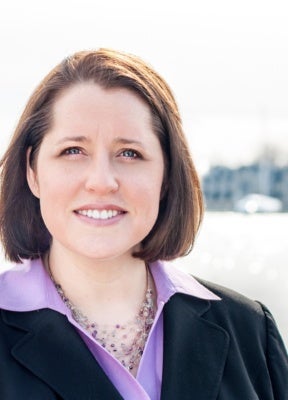 |
Dr. Cara LaPointe is a Senior Fellow at the Beeck Center for Social Impact and Innovation at Georgetown University and she has spent her career working at the intersection of emerging technologies, leadership, policy and ethics. Her expertise areas include blockchain technology as well as autonomous and unmanned systems. During two decades as a naval officer, she also held roles in government acquisitions, ship design and production, naval force architecture, and power and energy systems. Cara is a patented engineer and she holds degrees from the Massachusetts Institute of Technology, the Woods Hole Oceanographic Institution, the University of Oxford, and the United States Naval Academy. |
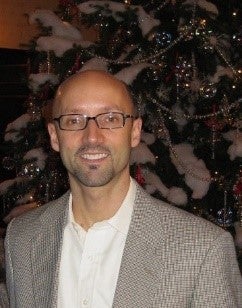 |
Welby Leaman is Senior Director for Global Government Affairs at Walmart, where he is lead on the Americas from the company’s headquarters in Arkansas. Walmart de México y Centroamérica has over 230,000 employees and 3000 stores, covering every state in Mexico and all five Central American CAFTA countries, which gives it a constructive role in both the U.S.-Mexico relationship and Mexico’s socioeconomic development prospects. Previously, as Trade Counsel to the U.S. House Ways & Means Committee, Leaman managed passage of the U.S.-Colombia trade agreement, consultation with USTR on 14 chapters of TPP and TTIP, and ongoing congressional oversight of NAFTA. He served as Director for International Investment at the U.S. National Security Council and as Senior Advisor at the U.S. Treasury, where he was lead U.S. negotiator of the financial services chapter of the Peru and Colombia trade agreements, led the team that wrote the CFIUS regulations, and helped staff the NAFTA Financial Services Committee. He practiced law at Debevoise & Plimpton and WilmerHale and was placed for several years into the Peruvian government by the UN Development Program. Leaman chairs the board of the Nazareth Project, serves on advisory councils for the Mexico Institute at the Wilson Center, the Rosenthal Fellowship, Aspen Institute’s Socrates Program, and INCAE business school. He was a 2014 Eisenhower Fellow in Brazil and is a member of the Council on Foreign Relations. He holds a B.S. from Messiah College and J.D. from Yale Law School. |
 |
Dean of the School of Public Affairs and a specialist in Latin American politics and U.S. foreign policy toward Latin America, William LeoGrande has been a frequent adviser to government and private sector agencies. He has written five books, including Our Own Backyard: The United States in Central America, 1977 – 1992. Most recently, he was co-editor of A Contemporary Cuba Reader: Reinventing the Revolution. Previously, he served on the staffs of the Democratic Policy Committee of the United States Senate, and the Democratic Caucus Task Force on Central America of the United States House of Representatives. William has been a Council on Foreign Relations International Affairs Fellow, and a Pew Faculty Fellow in International Affairs. His articles have appeared in various international and national journals, magazines and newspapers. |
 |
David Leonhardt is the Washington bureau chief of The New York Times. He is the author of the e-book, “Here’s the Deal: How Washington Can Solve the Deficit and Spur Growth,” published by The Times and Byliner. Previously, Mr. Leonhardt wrote the paper’s Economic Scene column, focusing on the housing bubble, the economic downturn, the budget deficit, health reform and education. In April 2011, he was awarded the Pulitzer Prize for commentary. Mr. Leonhardt has also been a staff writer for The New York Times Magazine and helped found the Economix blog. He won the Gerald Loeb Award for magazine writing in 2009 for a Times Magazine article, “Obamanomics.” In 2005, he was one of the reporters who produced “Class Matters,” the paper’s series on social class in the United States. In 2004, he founded an analytical sports column, called “Keeping Score.” He became Washington bureau chief in September 2011. Before joining The Times in 1999, he worked for Business Week magazine and The Washington Post. Mr. Leonhardt studied applied mathematics at Yale. He is a third-generation native of New York. |
 |
In 2014, Eric Letsinger founded Quantified Ventures to scale promising, evidence-based enterprises with strong potential for measurable social impact. Leveraging his performance management, data analytics, deal structuring and organizational transformation expertise to advance performance-based transactions (e.g., Social Impact Bonds, Pay For Success), he develops a series of impact investment projects across the healthcare, education, human services and environmental industries. Having spent much of his career driving government efficiencies through public-private initiatives, Eric finds Social Impact Bonds represent a natural progression of his life’s work, enabling the social and public sectors to price, buy and sell validated outcomes as a means to accelerate clients’ ability to meet mission.
Eric brings 25+ years of senior leadership and direct management experience to the social impact industry. In executive positions in the private sector (IBM, PricewaterhouseCoopers, Cyveillance Software), public sector (Baltimore City Public Schools, Baltimore Housing Department) and the non-profit sector (Green & Healthy Homes Initiative, Campaign to Fix the Debt, Samaritan Inns), he has honed deep expertise in, and passion for, the education, healthcare, environmental and human services sectors. Eric has an MBA from the Yale School of Management and a B.A. in Urban Studies from Northwestern University. Music is his thing. |
 |
Peter L. Levin was appointed Senior Advisor to the Secretary, and Chief Technology Officer of the Department of Veterans Affairs on June 1, 2009. In this role, Dr. Levin identifies new technologies and promotes innovations that will allow VA to serve veterans with higher reliability, greater accessibility, and lower cost. Dr. Levin further acts as a liaison to key stakeholders, other Federal agencies, and private sector partners. Dr. Levin has a long and distinguished career in both government and technology. Most recently, he worked as cofounder and Chief Executive of an award-winning semiconductor software firm. He sat on the board of directors of several early-stage technology start-ups, most notably NeoLinear Inc. and Astaro AG, and he was a general partner of TVM as well as a venture partner in Ventizz Capital – both early-stage venture capital firms based in Germany. Dr. Levin was a White House Fellow during the Clinton Administration; he was a Special Assistant to the Director of the Office of Management and Budget, and the Assistant to the Counselor to the President. He was also an expert consultant in the Office of Science and Technology Policy, where he co-edited the 1997 Biennial Presidential Report to Congress on Science and Technology, and co-authored its chapter on technology. |
 |
Madeline Levine, Ph.D. is a psychologist with close to 30 years of experience as a clinician, consultant and educator. Her New York Times bestseller, The Price of Privilege, explores the reasons why teenagers from affluent families are experiencing epidemic rates of emotional problems. Her new book, Teach Your Children Well, to be released July 31, 2012, outlines how our current narrow definition of success unnecessarily stresses academically talented kids and marginalizes many more whose talents and interests are less amenable to measurement. The development of skills needed to be successful in the 21st century- creativity, collaboration, innovation – are not easily developed in our competitive, fast-paced, high pressure world. Teach Your Children Well gives practical, research- based solutions to help parents return their families to healthier and saner versions of themselves. Dr. Levine is also a co-founder of Challenge Success, a project born at the Stanford School of Education. Challenge Success believes that our increasingly competitive world has led to tremendous anxiety about our childrens’ futures and has resulted in a high pressure, myopic focus on grades, test scores and performance. |
 |
Eric Liu is founder and CEO of Citizen University and teaches civic leadership at the University of Washington. He served as a White House speechwriter for President Clinton and later as the president’s deputy domestic policy advisor. After the White House, he was an executive at the digital media company RealNetworks. His books include A China Man’s Chance, The Gardens of Democracy, The True Patriot, The Accidental Asian, Guiding Lights, and Imagination First. Liu hosts the television interview program “Seattle Voices” and is a regular columnist for CNN.com and a correspondent for TheAtlantic.com. He is co-founder of the Washington Alliance for Gun Responsibility. |
 |
Donlyn Lyndon FAIA conducts a consulting practice, Architecture and Place, that draws on his extensive background in education, publication and practice in architecture and urban design Professor Lyndon’s work as an architect, author and educator concerned with the design of places has been widely recognized. Within CED he was a member of the Graduate Group for the Design of Urban Places and taught in both the Architecture and Master of Urban Design programs. He is the Editor of PLACES, a journal of environmental design, author of The Sea Ranch (with Jim Alinder) and The City Observed: Boston, and co-author of Chambers for a Memory Palace and The Place of Houses. He serves on the Boards of the International Laboratory of Architecture and Urban Design, in Italy and of the Charles Moore Center for the Study of Place in Austin TX. He is Chair of the Board of Directors for the Kronos Performing Arts Association and has served as a member of the Architectural Advisory Board for the US State Department’s Office of Overseas Building Operations. His architectural and urban design practice has included a continuing series of works at the Sea Ranch CA, where, with MLTW (Moore Lyndon Turnbull Whitaker), he was one of the designers of Condominium One, (1965) which subsequently received the distinguished 25 year Award from the AIA. He has continuing architectural work there and has been the architect for projects elsewhere in California, Texas, New England, the South and the Northwest. His urban design practice in California has included plans for Pasadena, Menlo Park and Berkeley, including the Bayer Bio tech campus and the Downtown Public Improvements Master Plan for Berkeley. He is a Fellow of the American Institute of Architects, his work has received numerous design awards and he is frequently asked to serve on architectural competition juries. Lyndon served as Head of the Department of Architecture at the University of Oregon, and at MIT, and is a former Chair of the Department of Architecture at Berkeley. His work as an educator was honored in 1997 with the AIA-ACSA’s Topaz Award, the highest award in architectural education, and he has served as a Chancellor’s Professor and as the Eva Li Professor at Berkeley. Research activity includes examination of the structure of place and the ethical dimensions of design. |
 |
Larissa MacFarquhar has been a staff writer at The New Yorker since 1998. Her Profile subjects have included John Ashbery, Barack Obama, Noam Chomsky, Hilary Mantel, Derek Parfit, David Chang, and Aaron Swartz, among many others. She is the author of “Strangers Drowning: Grappling with Impossible Idealism, Drastic Choices, and the Overpowering Urge to Help” (Penguin Press, 2015). Before joining the magazine, she was a senior editor at Lingua Franca and an advisory editor at The Paris Review, and wrote for Artforum, The Nation, The New Republic, the Times Book Review, Slate, and other publications. She has received two Front Page Awards from the Newswomen’s Club of New York, and her writing has appeared in The Best American Political Writing (2007 and 2009) and The Best American Food Writing (2008). |
 |
Michele Martin hosts “Tell Me More,” NPR’s talk program focused on headlines, issues, and the joys relevant to multicultural life in America. Martin’s career in journalism spans more than 25 years, with experience in newspapers; television; and, since joining NPR in 2006, public radio. As host, Martin orchestrates a gathering place for dialogue on important issues facing the country. With a range of guests, regular contributors, and NPR reporters, Martin talks about the challenges and opportunities of living in a fast-paced, complicated society. |
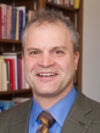 |
Russell Muirhead is the Robert Clements Associate Professor of Democracy and Politics at Dartmouth College. The author of Just Work (Harvard University Press, 2004), he is currently at work on a book on partisanship titled A Defense of Party Spirit. Previously, Muirhead taught political theory at the University of Texas at Austin, Harvard University, and Williams College. He was a Radcliffe Institute Fellow (2005-6) and a winner of the Roselyn Abramson Teacher Award at Harvard College. He holds a PhD and AB from Harvard University and a BA from Balliol College at Oxford University. |
 |
Michele Norris is one of the most trusted voices in American Journalism. Her voice informs, engages and enlightens listeners with thoughtful interviews and in depth reporting as one of the hosts of NPR’s flagship afternoon broadcast, All Things Considered. Michele uses an approachable interviewing style that is at once relaxed and rigorous. She’s interviewed world leaders, Nobel laureates, Oscar winners, American Presidents, military leaders, influential newsmakers and even astronauts traveling in outer space. In her first book, The Grace of Silence, she turns her formidable interviewing and investigative skills on her own background to unearth long hidden family secrets that raise questions about her racial legacy and shed new light on America’s complicated racial history. Michele started The Race Card Project in 2010 to help foster a candid dialogue about race. |
 |
Joseph Nye received his bachelor’s degree summa cum laude from Princeton University in 1958. He did postgraduate work at Oxford University on a Rhodes Scholarship and earned a Ph.D. in political science from Harvard University. He joined the Harvard Faculty in 1964, and taught one of the largest core curriculum courses in the college. In December 1995, he became Dean of the Kennedy School through June 2004. He is the Sultan of Oman Professor of International Relations and University Distinguished Service Professor. He has also worked in three government agencies. From 1977 to 1979, Mr. Nye served as Deputy to the Under Secretary of State for Security Assistance, Science and Technology and chaired the National Security Council Group on Nonproliferation of Nuclear Weapons. In recognition of his service, he received the highest Department of State commendation, the Distinguished Honor Award. In 1993 and 1994, he was chairman of the National Intelligence Council, which coordinates intelligence estimates for the President. He was awarded the Intelligence Community’s Distinguished Service Medal. In 1994 and 1995, he served as Assistant Secretary of Defense for International Security Affairs, where he also won the Distinguished Service Medal with an Oak Leaf Cluster. A Fellow of the American Academy of Arts and Sciences and of the Academy of Diplomacy, Mr. Nye has also been a Senior Fellow of the Aspen Institute, Director of the Aspen Strategy Group, and North American Chairman of The Trilateral Commission. He is a Fellow of the American Academy of Arts and Sciences and the Academy of Diplomacy; a director of the International Institute for Strategic Studies, a member of the advisory committee of the Institute of International Economics, and the American representative on the United Nations Advisory Committee on Disarmament Affairs. He has been a trustee of Wells College and Radcliffe College. A member of the editorial boards of Foreign Policy and International Security magazines, he is the author of numerous books and more than a hundred and fifty articles in professional journals. His most recent publication is The Powers to Lead (2008). In addition, he recently published; The Power Game: A Washington Novel (2004); Soft Power: The Means to Success in World Politics (2004), and an anthology, Power in the Global Information Age (2004). He has published policy articles in The New York Times, The Washington Post, The International Herald Tribune, The Wall Street Journal, and The Financial Times. He has appeared on programs such as ABC’s Nightline and Good Morning America, CNN’s Larry King Live, CBS’s Evening News, and The PBS News Hour with Jim Lehrer, as well as Australian, British, French, Swiss, Japanese, and Korean television. In addition to teaching at Harvard, Dr. Nye also has taught for brief periods in Geneva, Ottawa, and London. He is an honorary fellow of Exeter College, Oxford. He has lived for extended periods in Europe, East Africa, Central America, and traveled to more than 90 countries. His hobbies include fly fishing, hiking, squash, skiing, gardening, and working on his tree farm in New Hampshire. He is married to Molly Harding Nye, an art consultant and potter. They have three grown sons. |
 |
Peter R. Orszag is vice chairman of corporate and investment banking, chairman of the Public Sector Group, and chairman of the Financial Strategy and Solutions Group at Citigroup, Inc. He is a contributing columnist at Bloomberg View, a distinguished scholar at New York University School of Law, and an adjunct senior fellow at the Council on Foreign Relations. Orszag previously served as director of the Office of Management and Budget in the Obama administration and as director of the Congressional Budget Office. |
 |
Geneva Overholser is director of the School of Journalism at the University of Southern California Annenberg School for Communication and Journalism. Previously she held the Curtis B. Hurley Chair in Public Affairs Reporting for the Missouri School of Journalism, where she was based in the school’s Washington bureau. From 1988 to 1995, Overholser was editor of The Des Moines Register, where she led the paper to a Pulitzer Prize for Public Service. While at the Register, she also earned recognition as Editor of the Year by the National Press Foundation and was named “The Best in the Business” by American Journalism Review. In addition, Overholser has been ombudsman of The Washington Post, a member of the editorial board of The New York Times, a syndicated columnist for The Washington Post Writers Group, and a reporter for the Colorado Springs Sun. She has been a columnist for the Columbia Journalism Review and frequent contributor to Poynter.org. She also spent five years overseas, working and writing in Paris and Kinshasa. Through the Annenberg Public Policy Center, in 2006 she published a manifesto on the future of journalism titled On Behalf of Journalism: A Manifesto for Change. She is also co-editor, with Kathleen Hall Jamieson, of the volume “The Press,” part of the Oxford University Press Institutions of American Democracy series. Overholser is a member of the boards of the Knight Fellowships at Stanford, the Center for Public Integrity, the Committee of Concerned Journalists and the Academy of American Poets. She serves on the Journalism Advisory Committee of the Knight Foundation. She was for nine years a member of the Pulitzer Prize Board, the final year as chair, and is a former officer of the American Society of Newspaper Editors. She is a fellow of the Society of Professional Journalists and of the American Academy of Arts and Sciences. She held a Nieman fellowship at Harvard and a Congressional fellowship with the American Political Science Association. She holds a bachelor’s degree in history from Wellesley College, a master’s in journalism from the Medill School of Journalism at Northwestern University and a French language certificate from the Sorbonne. She has honorary doctorates from Grinnell College and St. Andrews Presbyterian College, and alumnae achievement awards from Wellesley, Northwestern and Medill. |
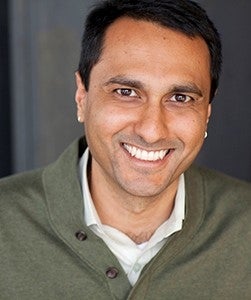 |
Eboo Patel founded Interfaith Youth Core on the idea that religion should be a bridge of cooperation rather than a barrier of division. He is inspired to build this bridge by his identity as an American Muslim navigating a highly religiously diverse social landscape. For over fifteen years he has worked with governments, social sector organizations, and college and university campuses to help make interfaith cooperation a social norm. Named by US News & World Report as one of America’s Best Leaders of 2009, Eboo served on President Obama’s Inaugural Faith Council and is the author of Acts of Faith, Sacred Ground and the new Interfaith Leadership: A Primer. He holds a doctorate in the sociology of religion from Oxford University, where he studied on a Rhodes scholarship. Eboo lives in Chicago with his wife, Shehnaz, and two sons. When he’s not teaching his kids about interfaith cooperation, you’ll find him feeding his coffee addiction and rooting for Notre Dame. |
 |
William Powers is the author of the New York Times bestseller, Hamlet’s BlackBerry. Widely praised for its insights on the digital future, the book grew out of research he did as a fellow at Harvard’s Shorenstein Center. He is currently a Research Scientist at the MIT Media Lab, where he’s developing new tools for social discourse. |
 |
Rebecca Ratner is an associate professor of marketing at the Robert H. Smith School of Business at the University of Maryland. Prior to joining the faculty at the Smith School, Ratner was associate professor of marketing at the Kenan-Flagler Business School at the University of North Carolina, a visiting scholar at the Wharton School of the University of Pennsylvania, and a visiting faculty fellow at the James M. Kilts Center for Marketing at the University of Chicago. Her research explores factors underlying suboptimal decision making and focuses on variety seeking, affective forecasting, and the influence of social norms. Her work has appeared in leading marketing, psychology, and decision-making journals, including Journal of Consumer Research, Journal of Personality and Social Psychology, Journal of Experimental Psychology, and Organizational Behavior and Human Decision Processes. She is a recipient of the Academy of Management Best Paper Award (for the most influential paper in conflict management from 1998-2001) and is the recipient of several teaching awards for her courses on consumer behavior and marketing management, which she has taught to MBA students, undergraduate students, and executives. She currently serves on the editorial boards of Journal of Marketing Research and Journal of Economic Psychology and is associate editor for Journal of Consumer Research. She holds a M.A. degree in psychology from Williams College and a Ph.D. in social psychology from Princeton University. |
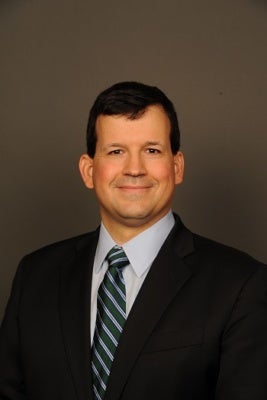 |
Dan Restrepo is a Senior Fellow at Center for American Progress, where his work focuses on the United States’ relationship with and place in the Americas, and particularly the importance of a high-functioning, mutually respectful and beneficial U.S.-Mexico relationship.
For nearly six years and through two presidential campaigns, Restrepo served as the principal advisor to President Barack Obama on issues related to Latin America, the Caribbean, and Canada, serving as special assistant to the president and senior director for Western Hemisphere affairs at the National Security Council from March 2009 to July 2012 and as an advisor to and surrogate for Obama for America during the 2008 and 2012 campaigns. Previously, Restrepo created and directed The Americas Project—focused on Latin America and on the role of Hispanics in the United States, their future, and the implications for public policy—at the Center for American Progress. Restrepo worked as an associate at the law firm of Williams & Connolly, LLP, and served as a judicial clerk to the Honorable Anthony J. Scirica of the U.S. Court of Appeals for the Third Circuit. Restrepo also worked for Rep. Lee H. Hamilton on the staff of the House Foreign Affairs Committee in the mid-1990s. Restrepo, who also serves as a consultant to private-sector clients on strategy, policy, and communications, is also a regular conference speaker and frequent commentator and analyst on various Spanish- and English-language media outlets on a wide range of domestic policy and national security issues. Restrepo is a graduate of the University of Virginia and the University of Pennsylvania School of Law. |
 |
Amanda Ripley writes books and feature magazine articles for the Atlantic and other outlets. She is the author, most recently, of The Smartest Kids in the World–and How They Got That Way, a New York Times bestseller. Her first book, The Unthinkable: Who Survives When Disaster Strikes–and Why, was published in 15 countries and turned into a PBS documentary. In her writing, Amanda explores the gap between public policy and human behavior. For Time and The Atlantic, she has written cover stories on the primacy of sports in American high schools, the college of the future and the science of motivating children. She has visited schools on four continents and interviewed hundreds of kids, teachers and parents. The Smartest Kids, Amanda’s last book, follows three American teenagers living for one year in countries with higher-performing education systems. The book was referenced on the op-ed page of the New York Times seven times, and it was published in 15 countries. A documentary film inspired by The Smartest Kids is currently in production across six countries. Amanda’s writing has also appeared in The New York Times, Slate, the Wall Street Journal and the Times of London. Her work has helped Time win two National Magazine Awards. To discuss her writing, Amanda has appeared on ABC, NBC, CNN, FOX News and NPR. She has spoken at the Pentagon, the U.S. Senate, the State Department and the Department of Homeland Security. Before joining Time as a writer in 2000, Amanda covered the D.C. courts for Washington City Paper and Capitol Hill for Congressional Quarterly. She graduated from Cornell University. She currently lives in Washington, D.C., where she is a senior fellow at the Emerson Collective. |
 |
Harvey Rishikof is a senior counsel in Crowell & Moring’s Privacy & Cybersecurity and Governments Contracts group in Washington, D.C. He specializes in national security, civil and military courts, terrorism, international law, civil liberties, and constitutional law. Prior to joining the firm, Rishikof was the dean of faculty at the National War College and former chair of the department of National Strategy, legal counsel to the deputy director of the FBI, federal law clerk to Leonard I. Garth (Third Circuit), and AA to the Chief Justice of the United States. He also previously served as dean of Roger Williams University School of Law. Throughout his career, Rishikof has served on numerous committees and held multiple positions in government focusing on cybersecurity investigations. Most recently, he was the senior policy advisor to the National Counterintelligence Executive (NCIX), the agency responsible for counterintelligence and insider threat management across the federal government. He is a graduate of McGill University and earned an MA from Brandeis University, an MA from National War College, and a JD from New York Law School. |
 |
Peter F. Romero is the CEO of Experior Advisory, a Washington DC-based consulting firm that specializes in international business and political advising. Mr. Romero has over twenty-six years of experience negotiating in international markets and politics. He has advised major U.S. corporations on national and local strategies regarding environmental, indigenous, labor, and political issues. In addition, he advises U.S. and foreign companies on capital raising, selecting local partners, acquisitions, and mergers in association with several investment banks. From July 2001 to April 2003 Mr. Romero served as Managing Director of Violy, Byorum & Partners (VB&P). During this time, he led the advisory and consultancy practice at VB&P, which included foreign–venue dispute resolution and bidding (both public and private). Additionally, Mr. Romero is a board advisor to U.S. and foreign corporations on commercial and financial matters in connection with governmental affairs. Formerly, Mr. Romero was the Assistant Secretary of State of the new Western Hemisphere Affairs Bureau (an area that stretches from Canada to Chile), where he was the highest-ranking Hispanic in the career U.S. Foreign Service. A twenty-four-year career diplomat, he previously served inter alia as Principal Deputy Assistant Secretary, U.S. Ambassador to Ecuador and Chief of Mission of our Embassy in San Salvador. The bureau Ambassador Romero led is responsible for promoting U.S. interests in the Western Hemisphere in support of strengthening democratic institutions, expanding U.S. trade opportunities and attaining sustainable economic development, including the start of free trade negotiations with Chile. Ambassador Romero promoted enhanced cooperation on counternarcotics, crime, and poverty reduction. On counternarcotics, he was a principal architect of the Forward Operations Location (FOLS) concept, which now forms the lynchpin of our national security strategy. Ambassador Romero was responsible for making and defending budget proposals before the U.S. Congress and executing an annual operations budget in excess of $2 billion. First as U.S. Ambassador to Ecuador, and then as Assistant Secretary of State, Ambassador Romero played a key role in support of the peaceful resolution of the border dispute between Peru and Ecuador. Born in New York, Peter Romero received a Bachelor of Science degree and a Master of Arts degree in International Relations from Florida State University. He speaks fluent English, Spanish and Italian. |
 |
David Rose is an award-winning entrepreneur, author, and instructor at the MIT Media Lab. His research focuses on making the physical environment an interface to digital information. David is the CEO at Ditto Labs an image-recognition software platform which scours social media photos to find brands and products. His new book, Enchanted Objects, focuses on the future of the internet of things, and how these technologies will impact the ways we live and work. Prior to Ditto, David founded and was CEO at Vitality, a company that reinvented medication packaging now distributed by CVS, Walgreens, and Express Scripts. He founded Ambient Devices, which pioneered glanceable technology: embedding internet information in everyday objects like lamps, mirrors, and umbrellas. David holds patents for photo sharing, interactive TV, ambient information displays, and medical devices. His work has been featured at the MoMA, covered in The New York Times, WIRED, The Economist, and parodied on the Colbert Report. |
 |
Jeffrey Rosen is a professor of law at The George Washington University and the legal affairs editor of The New Republic. His most recent book is The Supreme Court: The Personalities and Rivalries that Defined America. He also is the author of The Most Democratic Branch, The Naked Crowd, and The Unwanted Gaze. Rosen is a graduate of Harvard College, summa cum laude; Oxford University, where he was a Marshall Scholar; and Yale Law School. Professor Rosen’s essays and commentaries have appeared in the New York Times Magazine, The Atlantic Monthly, on National Public Radio, and in The New Yorker, where he has been a staff writer. The Chicago Tribune named him one of the 10 best magazine journalists in America and the L.A. Times called him, “the nation’s most widely read and influential legal commentator.” |
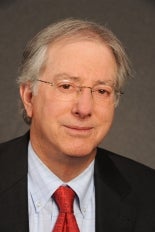 |
Ambassador Dennis Ross is counselor and William Davidson Distinguished Fellow at The Washington Institute for Near East Policy. Prior to returning to the Institute in 2011, he served two years as special assistant to President Obama and National Security Council senior director for the Central Region, and a year as special advisor to Secretary of State Hillary Rodham Clinton.For more than twelve years, Ambassador Ross played a leading role in shaping U.S. involvement in the Middle East peace process and dealing directly with the parties in negotiations. A highly skilled diplomat, Ambassador Ross was U.S. point man on the peace process in both the George H. W. Bush and Bill Clinton administrations. He was instrumental in assisting Israelis and Palestinians to reach the 1995 Interim Agreement; he also successfully brokered the 1997 Hebron Accord, facilitated the 1994 Israel-Jordan peace treaty, and intensively worked to bring Israel and Syria together.
A scholar and diplomat with more than two decades of experience in Soviet and Middle East policy, Ambassador Ross worked closely with Secretaries of State James Baker, Warren Christopher, and Madeleine Albright. Prior to his service as special Middle East coordinator under President Clinton, Ambassador Ross served as director of the State Department’s Policy Planning Staff in the first Bush administration. In that capacity, he played a prominent role in U.S. policy toward the former Soviet Union, the unification of Germany and its integration into NATO, arms control negotiations, and the 1991 Gulf War coalition. During the Reagan administration, he served as director of Near East and South Asian affairs on the National Security Council staff and deputy director of the Pentagon’s Office of Net Assessment. Ambassador Ross was awarded the Presidential Medal for Distinguished Federal Civilian Service by President Clinton, and Secretaries Baker and Albright presented him with the State Department’s highest award. A 1970 graduate of UCLA, Ambassador Ross wrote his doctoral dissertation on Soviet decisionmaking, and from 1984 to 1986 served as executive director of the Berkeley-Stanford program on Soviet International Behavior. He received UCLA’s highest medal and has been named UCLA alumnus of the year. He has also received honorary doctorates from Brandeis, Amherst, Jewish Theological Seminary, and Syracuse University. Ambassador Ross was named a 2016-2017 senior fellow by Yale University’s Jackson Institute for Global Affairs. Ambassador Ross has published extensively on the former Soviet Union, arms control, and the greater Middle East, contributing numerous chapters to anthologies. In the 1970s and 1980s, his articles appeared in World Politics, Political Science Quarterly, Orbis, International Security, Survival, and Journal of Strategic Studies. Since leaving government at the end of 2011, he has authored many op-eds in the New York Times, Washington Post, and other papers and magazines. In addition, he writes monthly columns for US News and World Report, the New York Daily News, and the Middle Eastern newspaper Asharq al-awsat. Ross is the author of several influential books on the peace process, most recently Doomed to Succeed: The U.S.-Israel Relationship from Truman to Obama (Farrar, Straus, and Giroux, October 2015). That book was awarded the 2015 National Jewish Book Award for history. Previously, he coauthored Myths, Illusions, and Peace: Finding a New Direction for America in the Middle East with Institute peace process expert David Makovsky. An earlier study, The Missing Peace: The Inside Story of the Fight for Middle East Peace (Farrar, Straus, and Giroux, 2004), offers comprehensive analytical and personal insight into the Middle East peace process. The New York Times praised his 2007 publication, Statecraft, And How to Restore America’s Standing in the World (Farrar, Straus and Giroux, 2007), as “important and illuminating.” |
 |
Professor Nouriel Roubini is an internationally known expert in the field of international macroeconomics. He is a Professor of Economics at New York University’s Stern School of Business and is also the co-founder and Chairman of RGE Monitor, an innovative economic and geo-strategic information service named one of the best economics websites by Business Week, Forbes, the Wall Street Journal and The Economist. Professor Roubini served as a senior adviser to the White House Council of Economic Advisers and the U.S. Treasury Department; has published numerous policy papers and books on key international macroeconomic issues; and is regularly cited as an authority in the media. He received an undergraduate degree at Bocconi University in Milan, Italy and a Ph.D. in Economics at Harvard University, and was previously a faculty member at Yale University. |
 |
Kai Ryssdal took the reins as host of the public radio program, Marketplace, produced by American Public Media (APM) in August 2005. He previously hosted APM’s Marketplace Morning Report for more than four years. Before joining Marketplace, Kai was a reporter and substitute host for The California Report, a news and information program distributed to public radio stations throughout California by KQED-FM in San Francisco. His radio work has won first place awards from the Radio and Television News Directors Association and the national Public Radio News Directors Association. After graduating from Emory University in Atlanta, Kai spent eight years in the United States Navy, first flying from the aircraft carrier U.S.S. Theodore Roosevelt, and then as a Pentagon staff officer. Before his career in public radio, Kai was a member of the United States Foreign Service and served in Ottawa, Canada, and Beijing, China. Kai is married and the father of four. He also enjoys running, a fact featured in a Runner’s World magazine article. |
 |
Judy Samuelson created the Aspen Institute Business and Society Program (BSP), an independently supported program at the Aspen Institute, in 1998. BSP respects the power of business to shape the long-term health of society, and works to align business decisions with the public good. It engages leaders and social intrapreneurs — from MBAs to CEOs — in dialogue, networks and public programs that put common sense decision-making at the heart of business practice and education. Signature programs include the Corporate Values Strategy Group, a forum for business leaders to promote change in policy and business practice in pursuit of long-term value creation, the Faculty Pioneer Awards, and the First Movers Fellowship Program. Judy spearheaded the creation of the Aspen Principles, a set of guidelines to spotlight short-termism in business and capital markets, and promote long-term focus by companies and institutional investors. The Principles are widely cited and were recently named one of “50 Stars in Seriously Long-Term Innovation.” Before Aspen, Judy led the Ford Foundation’s office of Program Related-Investments. She has also been a middle-market banker in New York’s garment center for Bankers Trust Company, and a lobbyist and legislative aide in her home state of California, working on health and education issues. Judy studied Political Science and Art History at UCLA and has a Master’s Degree from the Yale School of Management. She has served on the Boards of the Center for Political Accountability, which promotes transparency of political contributions by business; the micro-enterprise lender ACCION-New York; All Souls Unitarian Church; and Net Impact, where she is Chair Emeritus. Judy was named to the “Good Business New York list of Leading Women” and a Top 100 Thought Leader in Trustworthy Business Behavior. Judy publishes and speaks on the role of corporations in society; she tweets @JudySamuelson and blogs for Huffington Post. |
 |
Jeremy Schaap has been a reporter on ESPN since 1996, appearing frequently on SportsCenter and ˆ, on which he also serves as substitute host. In addition, he is the substitute host for The Sports Reporters on Sundays and contributes to ABC’s Nightline and World News Tonight. Schaap is also a correspondent for E:60, ESPN’s first multi-themed prime-time newsmagazine program. Schaap has won five Sports Emmy Awards and other honors for his work, which usually focuses not on simply who won or lost, but on breaking news, investigative journalism and profiling intriguing stories and personalities. He authored the New York Times bestseller Cinderella Man, which in 2005 became an Emmy-winning ESPN documentary about heavyweight champion James Braddock. He also authored Triumph: The Untold Story of Jesse Owens and Hitler’s Olympics, published in 2007. On Sept. 12, 2000, Schaap conducted a one-on-one, exclusive interview with former Indiana University coach Bob Knight – the first by Knight after being fired by the university two days earlier. He also was the first reporter to interview Darryl Strawberry in 1998 after the New York Yankee was diagnosed with colon cancer. In a poignant moment in 2006, Schaap won his fifth Sports Emmy Award, the one named for his award-winning journalist father who passed away in 2001 – the Dick Schaap Award for Writing. It was for the SportsCenter feature, “Finding Bobby Fischer.” He had previously won three for his work on Outside the Lines and one as a feature producer for SportsCenter. Before joining ESPN, Schaap, was a writer for NBC’s Atlanta Summer Olympics daytime show (hosted by Greg Gumbel), and a writer and producer for NBC’s Wimbledon coverage. In 1994, Schaap was a writer for CBS’s Lillehammer Winter Olympics prime-time show. His television career also includes covering sports and general news for New York 1 News (1992-94), and serving as an associate editor of special projects for the Winter and Summer Olympics for Sports Illustrated (1991-92). His writing has been published in the international edition of Time magazine, Sports Illustrated, ESPN The Magazine, Time, Parade, the New York Times, and in the official program of the Twenty-Fifth Olympiad. A native of New York City, Schaap is a 1991 graduate of Cornell University. |
 |
Kurt L. Schmoke, born in Baltimore, Maryland, in 1949, came from a middle class background. His father, Murray, a civilian chemist for the U.S. Army, was a graduate of Morehouse College, and his mother, Irene was a social worker. Schmoke attended the city’s prestigious public high school, Baltimore City College, winning both academic and athletic distinctions, and leading his school to a state championship in football. Schmoke entered Yale University in 1967 and three years later, he acted as a student leader to help defuse a crisis in 1970 over the New Haven murder trial of Black Panther Bobby Seale. After graduating from Yale, Schmoke studied as a Rhodes Scholar at Oxford University. In 1976 he graduated from Harvard Law School. Following a brief career in Washington, D.C., serving on the White House Domestic Policy Staff and at the Department of Transportation during the Administration of President Jimmy Carter, he returned to Baltimore and was elected to the position of State’s Attorney in 1982, and five years later he won the election for mayor of Baltimore. – See more at: https://www.blackpast.org/aah/schmoke-kurt-l-1949#sthash.ubxLI1bE.dpuf |
 |
Sonal Shah is Professor of Practice and the founding Executive Director of the Beeck Center for Social Impact & Innovation at Georgetown University. The Center is designed to be cross disciplinary focusing on providing experiential and skills-based learning for undergraduate and graduate students; developing executive programs for practitioners on social impact and innovation; developing actionable and practical thought-leadership on relevant issues in social impact and innovation; and designing a “lab” space for students, professors and practitioners to co-create social enterprises. Sonal is an economist and entrepreneur who has spent her career focused on actionable innovation in in government, business and the non-profit sectors. She is the former Deputy Assistant to the President and Director of the first White House Office of Social Innovation and Civic Participation that focused on investing in and scaling innovative models in the social sector. She also served on President Obama’s Transition Board overseeing the Technology, Innovation, Government Reform working group. Before joining the White House, Shah led Google’s global development initiatives for its philanthropy, Google.org. Prior to Google, Shah was a Vice President at Goldman Sachs, Inc. where she developed and managed the firm’s environmental strategy. She spent seven years at the U.S. Department of Treasury where she was an international economist working on timely development issues, including post-conflict development in Bosnia, Asian financial crisis, and poverty reduction in Africa. Sonal also has significant non-profit experience. She co-founded a non-profit, Indicorps, which offers fellowships for Indian-Americans to work on development projects in India. She helped set up the Center for Global Development where she managed the daily operations and developed the policy and advocacy programs for the Center. She also worked at the Center for American Progress focusing on trade, outsourcing and post conflict issues. Shah received her MA in Economics from Duke University and BA in Economics from the University of Chicago. She is a Senior Fellow at the Case Foundation working on Impact Investing; Senior Fellow at the Center for American Progress on social innovation; an Institute of Politics fellow at Harvard University; an Aspen Crown Fellow; and a Next Generation Fellow. She leads the G7 International Development Working Group for Impact Investing. She serves on the Boards of Social Finance, Inc. and the Washington Area of Women’s Foundation. |
 |
Sue Sheridan is the former Chief Counsel to the Subcommittee on Energy and Air Quality, a part of the Committee on Energy and Commerce of the U.S. House of Representatives. In that position, Sue served as the lead attorney responsible for overseeing hearings, drafting bills, and advancing legislative proposals on a wide variety of energy matters. Her expertise includes climate change policy, electricity regulation, nuclear energy and waste disposal issues, and oil and natural gas law. Sue began her work with the Committee on Energy and Commerce in 1983, serving as Majority Counsel from 1983 to 1994, as Senior Democratic Counsel from 1995 to 2006, and as Chief Counsel to the Subcommittee from 2007 to May 2008. Prior to her service on Capitol Hill, Sue worked on detail to the staff of the White House Domestic Policy Council and as a staff attorney for the U.S. Department of Energy. Sue received her J.D. from Vanderbilt Law School (1979), and her B.A. from Duke University (1976). She is a member of the Keystone Center Energy Board and an adviser to Columbia University’s Center for Energy, Marine Transportation and Public Policy. Sue is an adjunct professor at the George Washington Law School. She is a frequent speaker before U.S. and international audiences on energy and environmental policy, and represents corporate and environmental entities with interests in legislative and regulatory affairs. |
 |
Anne-Marie Slaughter is the Bert G. Kerstetter ’66 University Professor of Politics and International Affairs at Princeton University. From 2009–2011 she served as Director of Policy Planning for the United States Department of State, the first woman to hold that position. Dr. Slaughter is a frequent contributor to both mainstream and new media, publishing op-eds in major newspapers, magazines and blogs around the world and curating foreign policy news for over 40,000 followers on Twitter. She appears regularly on CNN, the BBC, NPR, and PBS, lectures widely, and has served on boards of organizations ranging from the Council of Foreign Relations and the New America Foundation to the McDonald’s Corporation and the Citigroup Economic and Political Strategies Advisory Group. Foreign Policy magazine named her to their annual list of the Top 100 Global Thinkers in 2009, 2010, and 2011. |
 |
Hedrick Smith, Pulitzer Prize-winning former New York Times reporter and editor and Emmy award-winning producer/correspondent, has established himself over the past 50 years of his career as one of America’s most distinguished journalists. In 26 years with The New York Times, Mr. Smith covered Martin Luther King Jr and the civil rights struggle, the Vietnam War in Saigon, the Middle East conflict from Cairo, the Cold War with stints in both Moscow and Washington, and six American presidents and their administrations. In 1971, as chief diplomatic correspondent, he was a member of the Pulitzer Prize-winning team that produced the Pentagon Papers series. In 1974, he won the Pulitzer Prize for International Reporting from Russia and Eastern Europe. For PBS since 1989, Hedrick Smith has created 26 prime-time specials and mini-series on such varied topics as terrorism, Wall Street, Soviet perestroika, Wall Street, Wal-Mart, Enron, tax evasion, educational reform, health care, the environment, jazz greats Duke Ellington and Dave Brubeck, and Washington’s power game. |
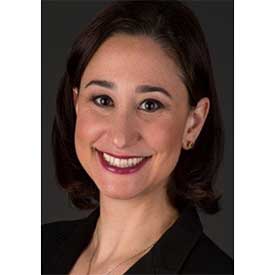 |
Jamie Smith brings nearly two decades of strategic communications experience to BitFury. Smith has previously served as Executive Vice President overseeing multi-channel media for Edelman Public Relations, Special Assistant to the President, Presidential Spokesperson, and Deputy White House Press Secretary, Director of Public Affairs for the Office of the Director of National Intelligence (ODNI), Communications Director for the Senate Commerce, Science and Transportation Committee and its then Chairman, U.S. Senator John D. (Jay) Rockefeller IV’s, Traveling Press Director and Spokesperson for Secretary Hillary Clinton’s 2008 President Campaign, Communications Director for Secretary Madeleine K. Albright and The Albright Group, LLC, and Legislative Aide to Congresswoman Nita M. Lowey. |
 |
Tara D. Sonenshine is the former Under Secretary of State for Public Diplomacy and Public Affairs. She assumed the role of Senior Career Coach at the Elliott School of International Affairs at George Washington University effective January 30, 2017. As a career coach, Sonenshine assists students in the Masters’ program to navigate their global careers.Tara Sonenshine has a distinguished career in government, non-profits and the media. She has demonstrated expertise in foreign policy, programming, communications strategy and public policy and has had extensive dealings with business, community and governmental leaders worldwide. Her high level experience in the media includes producing news programs for network television and authoring articles for national print and online media. Sonenshine is the winner of 10 News Emmy Awards and other awards in journalism for programs on domestic and international issues. Having served on the Board of Trustees at the Women’s Foreign Policy Group and other organizations. Ms. Sonenshine has actively consulted to the private sector, NGO sector, and multiple clients on media outreach, board development, and strategic communications including facilitation and moderating programs for The Wilson Center, The United States Institute of Peace, Voice of America and others. Sonenshine has worked at The White House as Deputy Director of Communications. She is a contributor to The Hill.com and other media outlets. |
 |
Andrew Ross Sorkin is a columnist for The New York Times and the paper’s chief mergers and acquisitions reporter. He is also the editor of DealBook, an online daily financial report he started in 2001. In addition, Sorkin is an assistant editor of business and finance news, helping guide and shape the paper’s coverage. Sorkin wrote the best-selling book, Too Big to Fail, which was made into a movie by HBO. He is a frequent guest host of CNBC’s “Squawk Box” and often appears on MSNBC’s “Morning Joe” and PBS’s “Charlie Rose.” He won a Gerald Loeb Award, the highest honor in business journalism, in 2004 for breaking news. He also won a Society of American Business Editors and Writers award for breaking news in 2005 and again in 2006. In 2007, the World Economic Forum named him a Young Global Leader. |
 |
Jeff Speck is a city planner and urban designer who, through writing, lectures, public service, and built work, advocates internationally for smart growth and sustainable design. He currently leads a private consultancy offering design and advisory services to public officials and the real estate industry. As Director of Design at the National Endowment for the Arts from 2003 through 2007, Mr. Speck presided over two NEA leadership initiatives, the Mayors’ Institute on City Design and Your Town, both of which teach design skills to community leaders nationwide. He also created and ran a new initiative, the Governors’ Institute on Community Design, which is bringing smart growth principles and techniques to state leadership. Prior to his federal appointment, Mr. Speck spent ten years as Director of Town Planning at Duany Plater-Zyberk & Co., Architects and Town Planners. DPZ is a leader in the international movement called the New Urbanism, which promotes alternatives to suburban sprawl and urban disinvestment. Mr. Speck is a contributing editor to Metropolis magazine, and serves on the Sustainability Task Force of the US. Department of Homeland Security. With Andres Duany and Elizabeth Plater-Zyberk, he is the co-author of Suburban Nation: The Rise of Sprawl and the Decline of the American Dream, which the Wall Street Journal calls “the urbanist’s bible.” With Andres Duany, he has written The Smart Growth Manual, just published by McGraw Hill. |
 |
In December 2009, Hari Sreenivasan joined the new PBS NewsHour as an online and on-air correspondent. Hari makes regular news updates throughout the day on the NewsHour’s website in addition to appearing nightly on the program. He also anchors the NewsHour Weekend. While at CBS News, Hari reported regularly on the “CBS Evening News,” “The Early Show;” and “CBS Sunday Morning.” Before that, he served as an anchor and correspondent for ABC News, working extensively on the network’s 24-hour digital service “ABC News Now.” Hari also reported for “World News Tonight”, “Nightline.” and anchored the overnight program World News Now. Previously, he ran his own production company and freelanced as a reporter for KTVU-TV in Oakland, Calif. (2002-04). Sreenivasan served as an anchor and senior correspondent for CNET Broadcast in San Francisco, Calif. (1996-2002) and was a reporter for WNCN-TV in Raleigh, N.C. (1995-96) He is the recipient of multiple Outstanding Broadcast Story Awards from the South Asian Journalists Association, an organization for which he served as a board member from 2001-04. Sreenivasan is also a member of the Asian American Journalists Association and a 2003 graduate of their Executive Leadership Program. He was born in Mumbai, India, where he also spent his early childhood. Sreenivasan graduated from the University of Puget Sound in 1995 with a degree in mass communication and minors in politics and philosophy. |
 |
Elizabeth Stark is a leader in the global free culture movement. She is a Fellow at the Yale Information Society Project, a Lecturer in Computer Science at Yale University, and an Adjunct Associate Professor at NYU. A graduate of Harvard Law School, Stark founded the Harvard Free Culture Group and served on the board of directors of Students for Free Culture. While at Harvard, she was Editor-at-Large of the Harvard Journal of Law & Technology, and worked with the Harvard Advocates for Human Rights to make better use of new media to promote human rights. Elizabeth spent years researching for the Berkman Center for Internet & Society at Harvard, and has taught courses ranging from Cyberlaw to Intellectual Property to Technology & Politics to Electronic Music. She recently produced the inaugural Open Video Conference in NYC, garnering nearly 9000 participants in person and across the web. Elizabeth regularly gives talks around the world on the intersection of law, technology, and culture, and has collaborated with myriad organizations on promoting shared knowledge and the open web. She has lived and worked in Berlin, Singapore, Paris, and Rio de Janeiro, and speaks French, German, and Portuguese. |
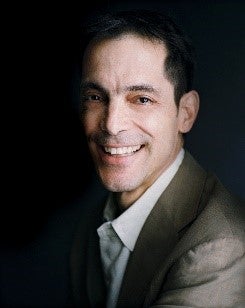 |
John Stauffer is Professor of English and African American Studies and former chair of American Studies at Harvard University. He is the author or editor of 20 books and over 100 articles focusing on antislavery and/or photography. “GIANTS: The Parallel Lives of Frederick Douglass and Abraham Lincoln” was a national bestseller. “The Black Hearts of Men” was the co-winner of the Frederick Douglass Book Prize and the Lincoln Prize. “Picturing Frederick Douglass” was a Lincoln Prize finalist. His essays and reviews have appeared in Time, Wall Street Journal, New York Times, Washington Post, and in scholarly journals and books. He has been featured on national radio and TV, including “The Diane Rehm Show,” “Fresh Air,” and “Book TV.” And he has served as a consultant for several films, including “Django,” “The Free State of Jones,” and “The Abolitionists.” He lives in Cambridge with his wife and two sons. |
 |
Susan P. Sturm is the George M. Jaffin Professor of Law and Social Responsibility and the founding director of the Center for Institutional and Social Change at Columbia Law School. She has published numerous articles, case studies and books on “the architecture of inclusion,” institutional change, transformative leadership, workplace equality, legal education, and inclusion and diversity in higher education. Her recent publications include: Scaling Up (2010); Negotiating Workplace Equality (2008); Conflict Resolution and Systemic Change (with Howard Gadlin, 2007); The Architecture of Inclusion: Advancing Workplace Equity in Higher Education (2006); Law’s Role in Addressing Complex Discrimination (2005); Equality and the Forms of Justice (2004); Lawyers and the Practice of Workplace Equity (2002); Second Generation Employment Discrimination: A Structural Approach, (2001); and Who’s Qualified? (with Lani Guinier, 2001). “The Architecture of Inclusion” was the focus of a symposium issue published in the June 2007 issue of the Harvard Journal of Law and Gender. Sturm is the principal investigator for a Ford Foundation grant awarded to develop the architecture of inclusion in higher education. She has worked with numerous research and educational organizations and networks seeking to build the knowledge and capacity needed to advance full participation and exercise leadership in addressing important problems. She is currently co-chairing a working group on Transformative Leadership, as part of a Ford Foundation funded project on Building Knowledge for Social Justice. Her research on strategies for facilitating constructive multi-racial interaction in police training is featured on the Racetalks website, www.racetalks.org. Professor Sturm was one of the architects of the national conference on The Future of Diversity and Opportunity in Higher Education. In 2007, she received the Presidential Teaching Award for Outstanding Teaching at Columbia. |
 |
Ray Suarez was most recently the host of Al Jazeera America’s daily news program, Inside Story. The program covered a wide array of national and international news stories, from the rise of Donald Trump to long-term unemployment to the Russian seizure of the Crimean peninsula to the arrival of the zika virus on US soil. Before coming to AJAM, Suarez spent 14 years as a correspondent and anchor at public television’s nightly newscast, The PBS NewsHour where he rose to become chief national correspondent. During his years at The NewsHour, Suarez covered the 9/11 attacks on New York and Washington, four presidential elections, broadcast from the floor of seven party political conventions, moderated two presidential primary candidates’ debates, reported from the devastating Haitian earthquake, the 2006 Mexico elections, the H1N1 virus pandemic in Mexico, and on the explosion of tuberculosis/HIV co-infection in South Africa among hundreds of other stories. Before arriving at The NewsHour Suarez was the Washington-based host of NPR’s Talk of the Nation for six-and-a-half years. During Suarez’ time as host, the program’s carriage more than doubled to more than 150 radio stations, and the audience more than tripled in size to two-and-a-half million. The New York Times called Suarez the “thinking man’s talk show host,” and “a national resource.” The magazine Utne Reader called him a “visionary.” Talk of the Nation made history, broadcasting live coast to coast across South Africa and across the United States, connecting these two audiences to talk about the post-apartheid future during the first elections after liberation. During Northern Ireland’s first Christmas in peace after decades of The Troubles, Talk of the Nation became the first radio program ever simulcast over Ireland’s RTE, Britain’s BBC, and NPR in the United States. |
 |
Julia E. Sweig is the Nelson and David Rockefeller senior fellow for Latin America Studies and director for Latin America studies at the Council on Foreign Relations (CFR). Dr. Sweig also directs CFR’s Global Brazil initiative. Dr. Sweig writes a bi-weekly column for Folha de São Paulo, Brazil’s leading newspaper. She is the author of Cuba: What Everyone Needs to Know (Oxford University Press, 2009, 2013) and Friendly Fire: Losing Friends and Making Enemies in the Anti-American Century (Public Affairs, 2006), as well as numerous publications on Latin America and American foreign policy. Dr. Sweig’s Inside the Cuban Revolution: Fidel Castro and the Urban Underground (Harvard University Press, 2002) received the American Historical Association’s Herbert Feis Award for best book of the year by an independent scholar. Dr. Sweig serves on the international advisory board of the Brazilian Center for International Relations (CEBRI). She was the Sol M. Linowitz professor of international relations, Hamilton College in 2011, and, from 1999 to 2008, served as a consultant on Latin American affairs for the Aspen Institute Congressional Program. She holds a BA from the University of California and an MA and PhD from the Johns Hopkins University School of Advanced International Studies. |
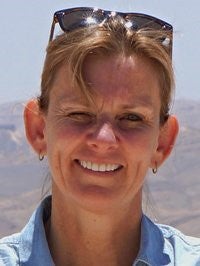 |
Dina Temple-Raston is NPR’s counter-terrorism correspondent and has been reporting from all over the world for the network’s news magazines since 2007. She recently completed a Nieman Fellowship at Harvard University where she studied the intersection of Big Data and intelligence. Prior to NPR, Temple-Raston was a longtime foreign correspondent for Bloomberg News in Asia and served as Bloomberg’s White House correspondent during the Clinton Administration. She has written four books, including The Jihad Next Door: Rough Justice in the Age of Terror, about the Lackawanna Six terrorism case. She is a frequent contributor to the PBS Newshour, a regular reviewer of national security books for the Washington Post Book World, and also contributes to the New Yorker, WNYC’s Radiolab, the TLS, and the Columbia Journalism Review, among others. She is a graduate of Northwestern University and Columbia University’s Graduate School of Journalism, and she has an Honorary Doctorate of Humane Letters from Manhattanville College. |
 |
James Traub is a journalist specializing in international affairs. He is a columnist and contributor to the Website foreignpolicy.com. He worked as a staff writer for The New Yorker from 1993 to 1998, and then as a contributing writer to The New York Times Magazine from 1998 to 2011. Over the last decade he has reported from among other places, Afghanistan, Iraq, Pakistan, Iran, Egypt, Sudan, Guinea Bissau, Congo, Sierra Leone, Angola, Georgia, Kosovo and Haiti. He has also written extensively about national politics, urban affairs, and education. His most recent book is The Freedom Agenda: Why America Must Spread Democracy (Just Not The Way Bush Did). In 2006 he published The Best Intentions: Kofi Annan and the UN in the Era of American World Power. He has recently completed a biography of John Quincy Adams, to be published by Basic Books. He teaches classes on American foreign policy and on nation-building at NYU Abu Dhabi. He is the host for the Ethic Matters series of public conversations at the Carnegie Council for Ethics in International Affairs. He is a fellow of the Center on International Cooperation and a member of the Council on Foreign Relations. |
 |
Brian Trelstad is the Chief Investment Officer of Acumen Fund, a $60M social investment fund investing in innovative social enterprises in South Asia and East Africa delivering critical health, water, housing and energy services to the base of the pyramid. He also drives Acumen’s work measuring social and financial return and is a founding executive committee member of the Aspen Network of Development Entrepreneurs (ANDE). Prior to Acumen Fund, Brian was a management consultant with McKinsey & Company in their New Jersey office. He has co-founded and advised several early-stage technology companies and social enterprises and was the lead environmental staffer for President Clinton’s Corporation for National Service. He is a graduate of Harvard College, Stanford University’s Graduate School of Business and the University of California’s College of Environmental Design. Brian is a member of the 2010 class of Henry Crown Fellows at the Aspen Institute. He is also a Kauffman Fellow (Class 12) and was the first impact investor to participate in the fellowship program. |
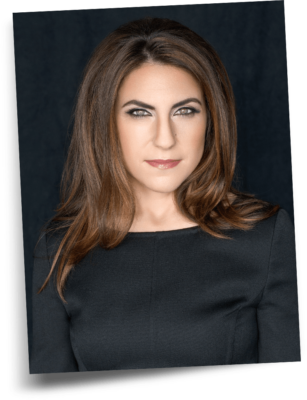 |
Gayle Tzemach Lemmon is an adjunct senior fellow at the Council on Foreign Relations and the author of Ashley’s War and The Dressmaker of Khair Khana, both New York Times best sellers.
Lemmon is a contributor to the Atlantic’s Defense One site, writing on national security and foreign policy issues, and a former contributing editor at Newsweek Daily Beast. She also writes regularly on Afghanistan’s politics and economy, entrepreneurship in fragile states, the fight to end child marriage, and issues affecting women and girls for publications including the New York Times, Financial Times, Fast Company, Christian Science Monitor, and CNN.com. Lemmon regularly appears on a number of broadcast networks, including PBS, MSNBC, CNN, and National Public Radio, to discuss foreign policy issues. In December 2011, she gave the opening talk at TEDxWomen, which focused on why investing in women can make the difference for the global economy. Her presentation was named a “TED Talk of the Day.” From 1997 to 2004, Lemmon covered presidential politics and public policy issues for the ABC News Political Unit and served as an editorial producer during the first year of “This Week with George Stephanopoulos.” In 2004, she left ABC News to pursue her interest in international development and began MBA study at Harvard. After business school, she served as a vice president at the global investment firm PIMCO, where she worked in the executive office and in emerging markets. Lemmon graduated summa cum laude from the University of Missouri with a bachelor’s degree in journalism. She received an MBA from Harvard, as well as the 2006 Dean’s Award for her work on women’s entrepreneurship. She served as a Fulbright scholar in Spain and a Robert Bosch Foundation fellow in Germany. She speaks Spanish, German, and French, and is conversant in Dari. She serves on the boards of Mercy Corps and the International Center for Research on Women. |
 |
Vijay V. Vaitheeswaran is the award-winning global correspondent for The Economist. In his two decades on staff at The Economist, he has covered development issues, energy and environment, health care, and innovation. He is an expert advisor to the World Economic Forum/Davos and a lifetime member of the Council on Foreign Relations. He also teaches at New York University’s Stern Business School. Vaitheeswaran has addressed groups ranging from the US National Governors’ Association and the UN General Assembly to the TED and the American Association for the Advancement of Science conferences. He is the co-author most recently of ZOOM: The Global Race to Fuel the Car of the Future (Twelve, 2007), which was named a Book of the Year by Financial Times. |
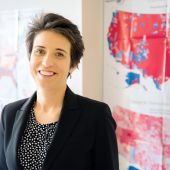 |
Amy Walter is the National Editor of The Cook Political Report where she provides analysis of the issues, trends and events that shape the political environment. Her weekly column appears at cookpolitical.com.
Over the past 19 years, Amy Walter has built a reputation as an accurate, objective, and insightful political analyst with unparalleled access to campaign insiders and decision-makers. Known as one of the best political journalists covering Washington, she is the former political director of ABC News. She is also a regular panelist on NBC’s Meet the Press, Fox News’ Special Report with Bret Baier and CBS’ Face the Nation. She provides political analysis every Monday evening for the PBS NewsHour. This is Amy’s second tour of duty with The Cook Political Report. From 1997 to 2007, she served as Senior Editor where she covered the U.S. House. Walter was named one of DC’s “50 Top Journalists” by Washingtonian Magazine in 2009 and honored with the Washington Post’s Crystal Ball award for her spot-on election predictions in 2000. She is a member of the Board of Trustees at Colby College where she graduated summa cum laude. |
 |
Marvin Weinbaum is currently a Scholar-in-Residence with the Middle East Institute. He previously served as an Afghanistan and Pakistan Analyst at the Bureau of Intelligence Research at the State Department (1999-2003), Professor Emeritus oat the University of Illinois and Director of the Program in South Asian and Middle Eastern Studies and Senior Fellow at the United States Instibailey
tute of Peace (1996-97). |
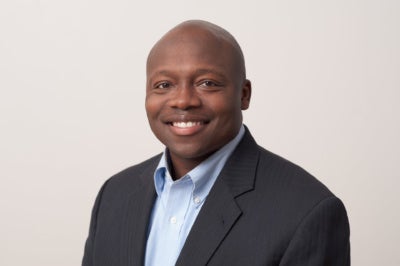 |
Wilson L. White is a Director on the Public Policy & Government Relations team at Google, where he is the global policy lead for Google’s Android, Hardware and Ads businesses. He also is responsible for managing the company’s public policy strategies for emerging technologies, such as artificial intelligence, virtual reality, FinTech, and IoT. With more than 15 years of experience as an engineer and technology attorney, Wilson has used his multidisciplinary background and expertise to provide lawmakers, regulators and other key opinion formers across the Americas, Europe and Asia with thought leadership on the rapidly growing and changing mobile landscape and the societal implications of emerging technologies.
Wilson is an angel investor with a track record of representing inventors and advising start-up ventures. Since 2015, he has served as an adjunct faculty member at the University of Maryland Technology Enterprise Institute, where he teaches graduate and undergraduate courses in the University’s technology entrepreneurship program. He received a Bachelor’s degree in computer engineering from NC State University and a Juris Doctor from University of North Carolina School of Law. |
 |
Wing Woo has expertise in East Asian economies, particularly those of China, Indonesia and Malaysia. In addition to his academic appointment at UC Davis, he is President of the Jeffrey Cheah Institute on Southeast Asia in Kuala Lumpur; Chang Jiang Professor at the Central University of Finance and Economics in Beijing; Distinguished Professor at Fudan University in Shanghai; Director of the East Asia Program within the Earth Institute at Columbia University; and a Nonresident Senior Fellow at the Brookings Institution in Washington, D.C. He was a consultant to China for the tax and exchange rate reforms that nation implemented in 1994; convener of the Asian Economic Panel (a group of about 40 economists who meet three times a year to discuss Asian economic issues); and Managing Editor of the Asian Economic Papers (MIT Press). |
 |
R. James Woolsey is a venture partner at VantagePoint Venture Partners. He is also the Annenberg Distinguished Visiting Fellow at the Hoover Institution at Stanford University; Of Counsel to the law firm of Goodwin Procter; and chairman of the Strategic Advisory Group of Paladin Capital Corporation. Before he joined VantagePoint in March 2008, Mr. Woolsey was a Partner with Booz Allen Hamilton in McLean, Virginia, specializing in energy and security issues, and prior to that a partner with Shea & Gardner in Washington D.C., specializing in commercial litigation and alternative dispute resolution (arbitration and mediation). He practiced at the firm for 22 years on four different occasions and served five times in the federal government for a total of 12 years, holding Presidential appointments in two Democratic and two Republican administrations. He served as Director of Central Intelligence (1993-95), Ambassador and Chief Negotiator for the Conventional Armed Forces in Europe (CFE) Treaty in Vienna (1989-91), Delegate at Large (on a part-time basis) to the Strategic Arms Reductions Talks (START) and the Defense and Space Talks in Geneva (1983-86), Under Secretary of the Navy (1977-79), and General Counsel to the U.S. Senate committee on Armed Services (1970-73). He has served on numerous corporate and non-profit boards. From time to time he speaks publicly and contributes articles to newspapers and other periodicals on such issues as national security, energy, foreign affairs and intelligence. |
 |
Robin Wright has reported from more than 140 countries on six continents for The Washington Post, the Los Angeles Times, The New Yorker, The New York Times Magazine, TIME, The Atlantic, The Sunday Times of London, CBS News, Foreign Affairs and many others. Her foreign tours include the Middle East, Europe, Africa and several years as a roving foreign correspondent worldwide. She has covered a dozen wars and several revolutions. Until 2008, she covered U.S. foreign policy for The Washington Post. Wright has also been a fellow at the U.S. Institute of Peace, the Woodrow Wilson International Center for Scholars, the Brookings Institution, Carnegie Endowment for International Peace as well as Yale, Duke, Stanford, and the University of California. Among several awards, Wright received the U.N. Correspondents Gold Medal, the National Magazine Award for reportage from Iran in The New Yorker, and the Overseas Press Club Award for “best reporting in any medium requiring exceptional courage and initiative” for coverage of African wars. The American Academy of Diplomacy selected Wright as the journalist of the year for her “distinguished reporting and analysis of international affairs.” She also won the National Press Club Award for diplomatic reporting and has been the recipient of a John D. and Catherine T. MacArthur Foundation grant. She lectures extensively around the United States and has been a television commentator on morning and evening news programs on ABC, NBC, CBS, PBS, CNN and MSNBC as well as “Meet the Press,” “Face the Nation,” “This Week,” “Nightline,” “PBS Newshour,” “Frontline,” “Charlie Rose,” “Washington Week in Review,” “Hardball,” “Morning Joe,” “Anderson Cooper 360,” “The Situation Room with Wolf Blitzer,” “Piers Morgan Tonight,” “The Colbert Report” and HBO’s “Real Time.” Wright’s most recent book is “Rock the Casbah: Rage and Rebellion across the Islamic world.” Her other books include “Dreams and Shadows: The Future of the Middle East” (2008), which The New York Times and The Washington Post both selected as one of the most notable books of the year. She was the editor of “The Iran Primer: Power, Politics and U.S. Policy” (2010). Her other books include “The Last Great Revolution: Turmoil and Transformation in Iran” (2000), which was selected as one of the 25 most memorable books of the year 2000 by the New York Library Association, “Sacred Rage: The Wrath of Militant Islam” (2001), “Flashpoints: Promise and Peril in a New World” (1991), and “In the Name of God: The Khomeini Decade” (1989). |
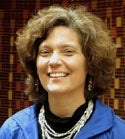 |
Connie Yowell is the visionary and CEO of Collective Shift, bringing considerable experience from the MacArthur Foundation where she oversaw a $150 million program on Digital Media and Learning.
Prior to joining the Foundation, Connie was an Associate Professor at the University of Illinois, publishing scholarly work that examines the complex interplay among young people’s emerging identity, their social context and achievement. Connie briefly served as Policy Analyst in the U.S. Department of Education during the Clinton Administration, and has worked closely with teachers and administrators to develop programs for youth development. In 2004, Connie received the Distinguished Fellows Award from the William T. Grant Foundation, an award to support scholars seeking to bridge research and practice, under which she worked with the National Writing Project to develop approaches that integrate web 2.0 technologies into the social practices of teachers. Connie earned her bachelor’s degree from Yale, and her PhD from Stanford University. |
 |
Philip Zelikow is the White Burkett Miller Professor and Director of Graduate Studies in History at the University of Virginia. Zelikow began his professional career as a trial and appellate lawyer in Texas. His Ph.D. is from Tufts University’s Fletcher School. He was a career diplomat, posted overseas and in Washington, including service on the NSC staff for President George H.W. Bush. Since 1991 he has taught and directed research programs at Harvard University and at the University of Virginia. His books include Germany Unified and Europe Transformed (with Condoleezza Rice), The Kennedy Tapes (with Ernest May), and Essence of Decision (with Graham Allison). In addition to service on some government advisory boards, and as an elected member of a local school board, he has taken two public service leaves from academia to return full-time to government service, in 2003-04 to direct the 9/11 Commission and in 2005-07 as Counselor of the Department of State, a deputy to Secretary Rice. He also advises the Bill & Melinda Gates Foundation’s program in global development and is a consultant to the Office of the Secretary of Defense. |
